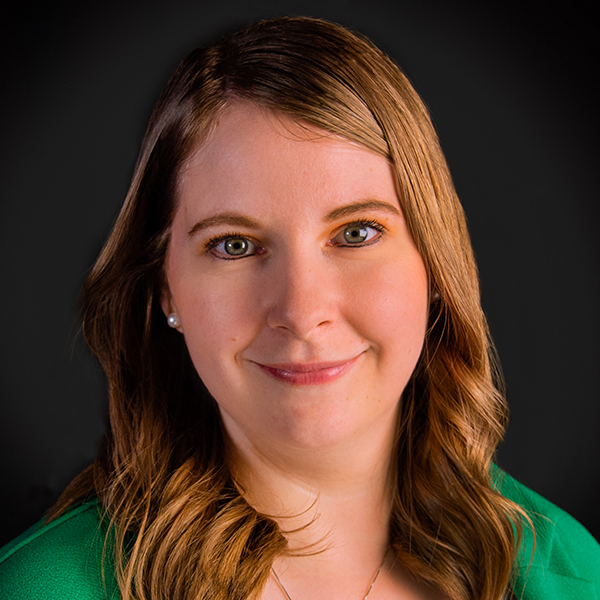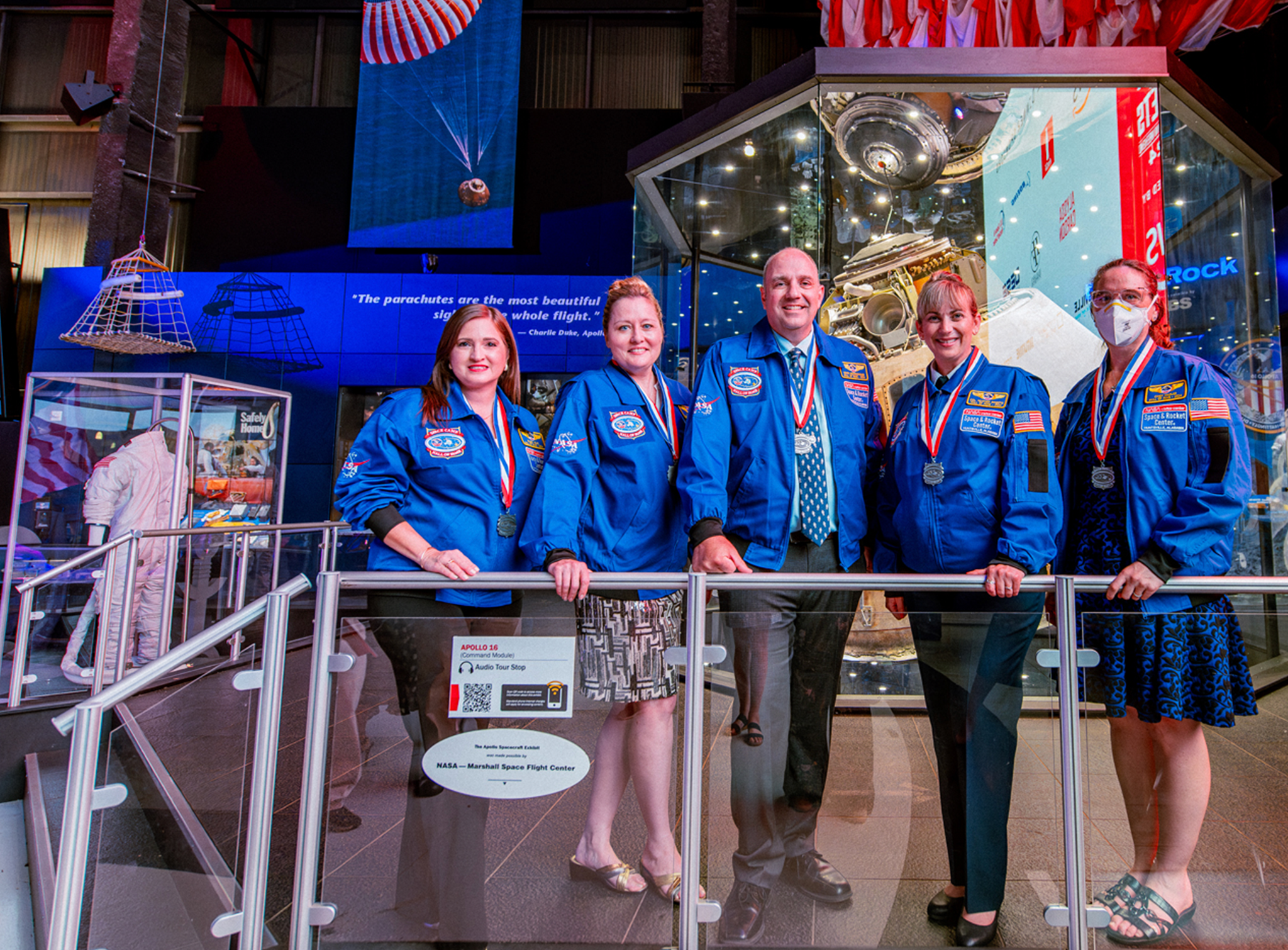
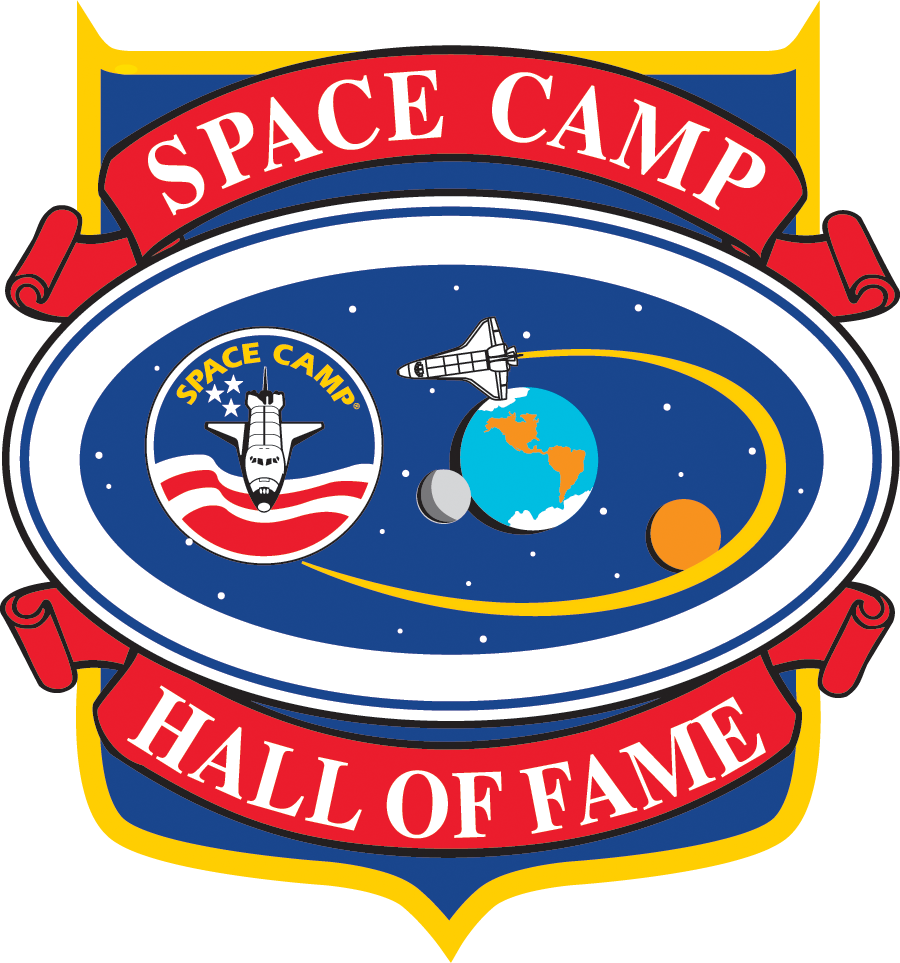
SPACE CAMP
HALL OF FAME
Promoting teamwork, curiosity, and exploration, with an eye on the future
The Space Camp Hall of Fame was established to honor the outstanding members of the Space Camp family, including graduates and former employees who have distinguished themselves in their respective careers or friends who have made considerable contributions or personal time, effort or resources to further the goals of the Space Camp programs.
Hall of Fame members should display certain characteristics and qualities as a result of their involvement with Space Camp through one of its multiple programs or as a whole. These qualities may differ from member to member, as well as across the Hall of Fame categories. Hall of Fame members should be a positive example of the effect and inspiration Dr. Wernher von Braun intended Space Camp to be. These qualities will be described further within each Hall of Fame category.
Support a student by donating to the Hall of Fame Scholarship
Space Camp Hall of Fame Nomination
Nominations open on July 11 and close on December 5.
Meet the Inductees
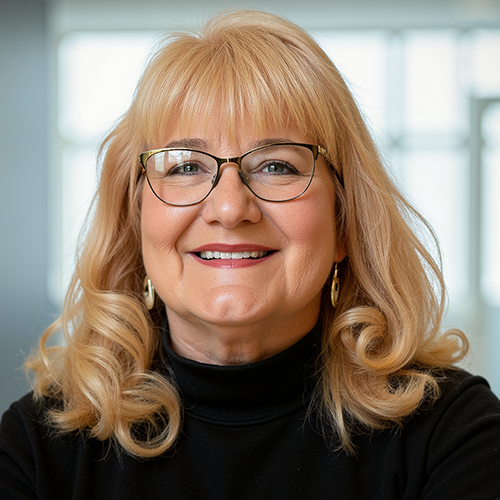
Trina Britcher
Trina Britcher dedicated 40 years to teaching students with blindness and low vision before retiring from the public school system. Trina has a deep love for her profession and feels immensely blessed to have been chosen to serve in this role throughout her life. Her extensive career included not only direct teaching but also involvement in various aspects of education, such as teacher training and in-service programs, consulting for state assessments, serving as a teacher representative for a state VI collaborative group, and coordinating with multiple state agencies and eye care professionals. She co-directed summer camps, organized inclusive field trips for students across the county, and much more. Trina remains active in her field by teaching braille literacy courses at Marshall University and serving as a materials coordinator and educational consultant for SCIVIS. She enjoys speaking at conferences and organizing activities for individuals with blindness and low vision through her local Lion’s Club.
Outside of her professional life, Trina loves to travel and hike. She has explored 47 states and plans to visit the Dakotas this summer, with aspirations of hiking the Camino in the future. Always seeking new opportunities for personal growth, she also enjoys reading, walking, and nurturing her faith in God. Trina treasures the time spent with her three children, who fill her with pride. Sarah is the Special Education Director for the Virtual Preparatory Academy of West Virginia and recently became a parent to Michael, her first grandchild. Matt, along with his wife Elisabeth, reside in Wake Forest, North Carolina, where he works as a licensed insurance broker. Gabe lives in Nagoya, Japan, with his wife Sayaka, and is an F-35 Manufacturing Test Engineer for Lockheed Martin. Both Matt and Gabe have attended Space Camp.
Trina has presented at numerous national and international conferences on braille and the education of individuals with blindness. She has also been published in the Journal of Visual Impairments and Blindness. Without a doubt, her students were always the best part of her job; however, three significant highlights stand out in her career. Trina was awarded the 2011 “Teacher of the Year” Award for excellence in braille instruction by the Braille Institute in Los Angeles, she was a Space Academy Team Member during the 2015 International Teacher of the Year Week and enjoyed the opportunity to visit and support teachers and students in St. Lucia.
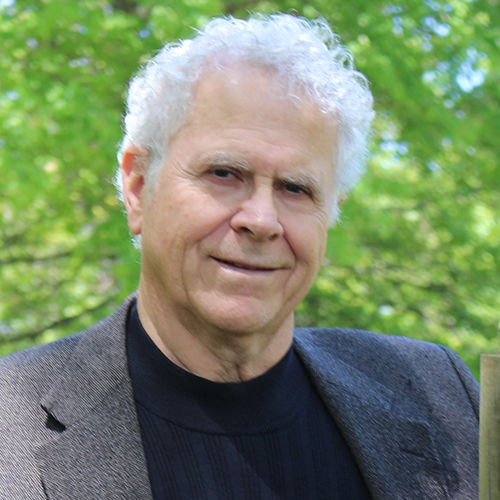
Homer Hickam
Homer Hickam is the author of many books including the acclaimed #1 NY Times memoir Rocket Boys that was made into the film October Sky. Born and raised in the coalfields of West Virginia, he is a graduate of Virginia Tech in Industrial Engineering and served in the 4th Infantry Division in Vietnam, earning Bronze Star & Army Commendation Medals. He worked for the Army Missile Command at Redstone Arsenal, AL, and the 7th Army Training Command in Germany before joining Marshall Space Flight Center with the Spacelab Program Office and later the Mission Operations Lab as a Crew Training Manager. He also worked as a diver in the Neutral Buoyancy Simulator for a variety of programs including the Hubble Space Telescope repair missions. He trained the first Japanese astronauts for Spacelab-J and was the first Payload Training Manager for the International Space Station. He is also an active member of the commission that oversees the U.S. Space & Rocket Center and Space Camp. His most recent venture is to become a publisher of an imprint – Homer Hickam Books – for Headline Books, Inc.
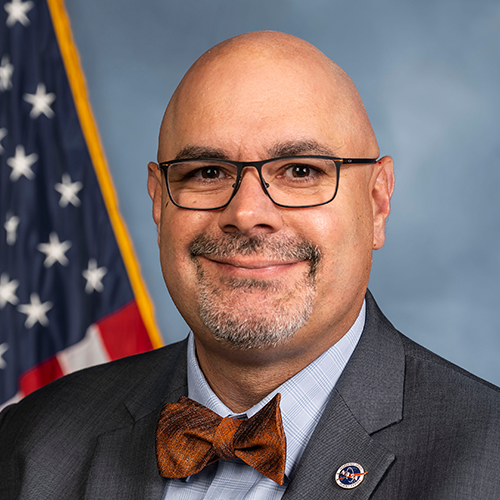
Joseph Pelfrey
Joseph Pelfrey is the director of NASA’s Marshall Space Flight Center in Huntsville, Alabama. He leads Marshall’s almost 7,000 onsite and near-site civil service and contractor employees and oversees an annual budget of approximately $5 billion. He also helps guide Marshall’s broad portfolio of human spaceflight, science, and technology development efforts, which touches nearly every mission NASA pursues. Pelfrey previously served as deputy center director since his appointment to the position in April 2022.
Throughout his NASA career, Pelfrey has served in multiple technical leadership positions at Marshall. He began his career as an industry partner, supporting development of space station payload hardware, and joined Marshall full-time in 2004 as an aerospace engineer in the Science and Mission Systems Office. He went on to serve in various leadership roles within NASA’s International Space Station Program, overseeing the development, integration, and operations of multiple payload facilities and science experiments.
In 2008, Pelfrey joined Marshall’s Engineering Directorate as the design integration lead for the Ares I Upper Stage, the rocket that would inform development of NASA’s SLS (Space Launch System). In 2011, he was named engineering task manager for SLS’ Spacecraft/Payload Integration and Evolution Office and, subsequently, manager of the Commercial Orbital Transportation Services Project at Marshall.
In 2012, Pelfrey was named deputy manager and then manager of the Exploration and Space Transportation Development Office in Marshall’s Flight Programs and Partnerships Office. In 2016, he was appointed to the Senior Executive Service post of associate director for operations in Marshall’s Engineering Directorate. The Senior Executive Service is the personnel system covering most top managerial, supervisory, and policy positions in the executive branch of the federal government.
Pelfrey served as deputy manager of Marshall’s Human Exploration Development and Operations Office from 2018 to 2020 and became manager of that organization from 2020 to 2022. In this role he oversaw management and implementation of Marshall’s work in the areas of human exploration and transportation projects; habitation systems, payload and mission operations and integration; and International Space Station payload, facility, environmental control and life support systems project development and integration.
A native of Cheraw, South Carolina, Pelfrey received a bachelor’s degree in aerospace engineering from Auburn University in 2000. He resides in Huntsville with his family.
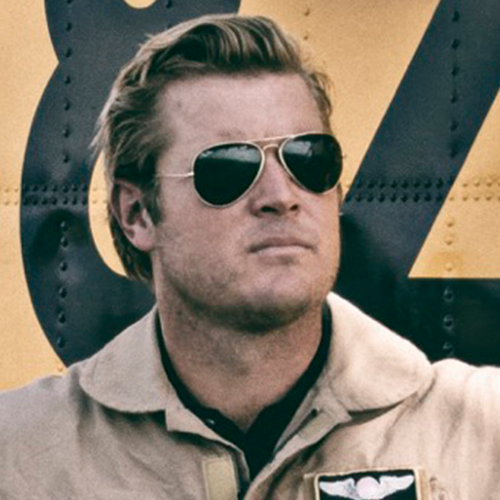
Tim Sheehy
Tim Sheehy is a father, husband, combat veteran, patriot, and an entrepreneur. As a child, Tim attended Space Camp and Aviation Challenge a total of seven times between 1996 and 2002. A graduate of the U.S. Naval Academy class of 2008 with a B.S. in History, Tim completed several deployments and hundreds of missions as a US Navy SEAL Officer and Team Leader, deploying to Iraq, Afghanistan, South America, and the Pacific region. Additionally, Tim completed a joint tour with Army Special Operations forces where he was privileged to complete US Army Ranger School and serve alongside the 5th Special Forces Group, 75th Ranger Regiment and other units within US Army Special Operations Command. Tim completed his active-duty service as a mini submarine pilot and navigator specializing in sensitive undersea operations. After his active-duty service, Tim fulfilled reserve duty as a recruiter and assessor for future naval officers. Tim was honorably discharged from the Naval Reserve in 2019.
In 2014, Tim founded Belgrade-based Bridger Aerospace with all of his savings and an all-veteran team. Today, Bridger Aerospace is a major Montana employer and one of only a few publicly traded companies in the state. In addition to founding Bridger Aerospace, Sheehy was an active firefighting pilot, completing hundreds of firefighting missions across the American West, protecting communities from devastation as a pilot of the CL415EAF Water Bomber and before that, as an Air Attack pilot in the AC690 Twin Commander. Tim remains a qualified FAA Commercial Pilot and a Certified Flight Instructor. Tim has also been the co-owner of a working cattle ranch and a cattle feeder operation, Little Belt Cattle Company and Yellowstone Cattle Feeders. Tim believes in strengthening America’s food supply chain.
Tim met his wife, Carmen, who served as a U.S. Marine Corps Officer, at the Naval Academy. Together, they share four beautiful and healthy children. The Sheehy’s live in southwest Montana and feel blessed to teach their kids about Montana’s proud tradition of cattle ranching on their veteran-led working cattle ranch. Tim was elected to serve the people of Montana in the U.S. Senate on November 5, 2024.
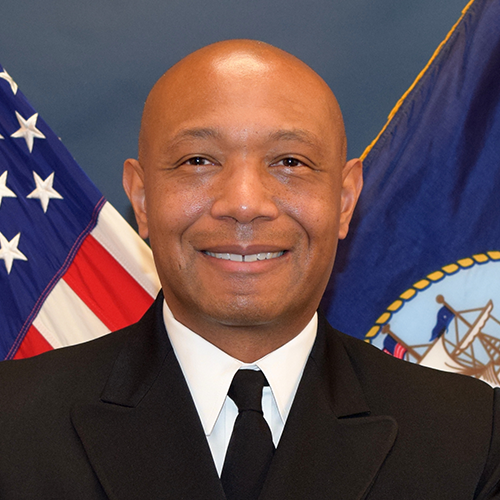
Diallo Wallace
Diallo Wallace is a California State Credentialed Teacher in Career Technical Education (CTE) with experience teaching aviation and engineering to youth. Diallo earned a Bachelor of Science in Electronics Engineering and a Bachelor of Arts in Mathematics from the University of Illinois. At the graduate level, he has attained a Master of Science in Astronautical Engineering from the Naval Postgraduate School and a Master of Project Management from Keller Graduate School. He is currently pursuing a Ph.D. in Engineering Education at Purdue University with a dissertation focus on the benefits of interweaving physics first and engineering curriculums for student self-efficacy in engineering. Diallo has presented to The American Society of Engineering Education (ASEE) on the gains of incorporating computation and computer programming in K-12 curriculums. He has presented at NASA’s Space Exploration Educators Conference (SEEC) on ways to implement the engineering design process for pre-college students and also how the crew of Apollo 13 was saved through geometry. Diallo developed and wrote a pre-college science and engineering curriculum that spans 6th to 12th grade. The middle school curriculum focuses on developing pre-engineering/science literacy, skills, and knowledge. The high school curriculum was approved by the University of California A-G program, recognizing the courses preparation of high school students for scientific or science-related studies at the university level. His passion is empowering K-12 and undergraduate students to understand science and engineering through the application of mathematics. Diallo is an Analog Astronaut participating in spacesuit evaluations at the University of North Dakota’sInflatable Lunar and Mars Habitat (ILMAH). He is also a member of NASA’s Airborne Astronomy Ambassador program where he flew aboard the SOFIA 747 flying telescope aircraft during a weeklong data collection effort. Diallo is also a very proud alumnus of Space Camp, actively encouraging teachers and students to attend the program.
In his military capacity, Diallo is a Naval Aviator and Aerospace Engineering Duty Officer in the NAVAIR Reserve Program (NRP). He serves in the Department of Aerospace Engineering at the United States Naval Academy, instructing aeronautics, astronautics, and MATLAB Computer programming courses. He is the Officer Representative of the 1000-member Naval Academy Flight Training Squadron (VTNA), where he trains and mentors midshipmen for flight school. Diallo routinely presents to youth and teachers about space and aviation as an active volunteer of the Naval Academy’s STEM Center for Education and Outreach.
His reserve tours include serving as Assistant Officer in Charge ) for Naval Reserve (NR) Flight Test Augmentation Unit, Executive Officer of NR Joint Functional Component Commander for Space, and Administration Officer for NR Rapid Research and Development Unit. Diallo is a member of the Defense Acquisition Corps, earning a Level III in Program Management, and has attained the highest level of AQD for Space Acquisitions and Space Operations. He has served at Johnson Space Center’s Astronaut Office supporting the International Space Station.
Diallo earned Joint Professional Military Education I while serving as an Associate Fellow for The Chief of Naval Operations Strategic Studies Group XXIV. He has been awarded the Military Outstanding Volunteer Service Medal for his work teaching aviation to youth in San Diego, California. His other decorations consist of the Global War on Terrorism Service Medals, National Defense Service Medal, Sea Service Deployment Ribbon, the Armed Forces Expeditionary Medal, Naval Unit Commendation, and the Navy Achievement Medal.
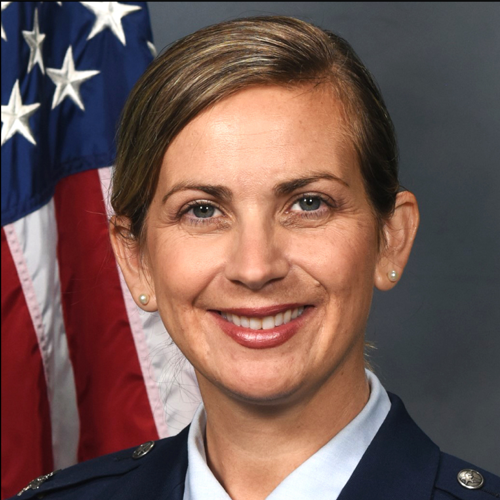
Col. Heather Bogstie
Colonel Bogstie was inspired through her attendance at Space Camp to pursue a career in space for the military. Knowing that so many astronauts have a military background, and coupled with her family’s strong military heritage joining the Air Force was a natural pathway to reach her dreams. She spent time as a missile operator in Minot, North Dakota before leaping into space acquisitions. She has led the development, test, and launches of satellites performing missile warning, space domain awareness, and communications. Her time at Space Camp taught her to always be searching for new innovations and technologies that will boost the capabilities of Department of Defense, that teamwork is crucial in mission success, and partnerships with other government agencies, industry, and international allies are the key in furthering advancements in space. When relaying her origin story, Colonel Bogstie always credits her time at Space Camp as to why she was inspired to pursue Space as a career. She learned how to get out of her comfort zone, challenge herself, communicate clearly, team with others, and lead a group toward mission success. She hopes her origin story will inspire others to pursue their dreams and carve out a path to achieving those goals.
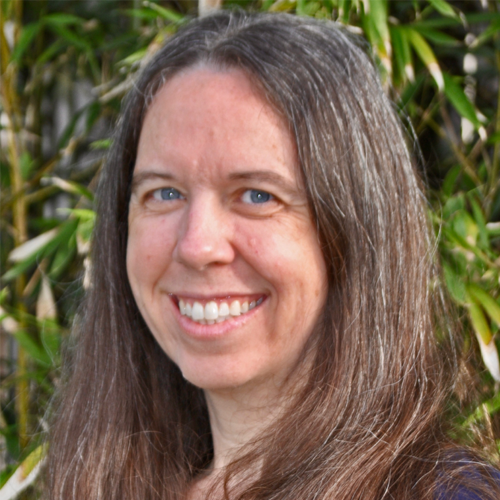
Cindy Mahler
A few of Cindy’s post-camp achievements are shared here as highlights of her 25+ year aerospace career. They serve as a testimony for how one incredible week of belonging at Space Academy Level II as a sophomore in high school cemented her passion and desire to make a difference in the aerospace field.
As an early career engineer for United Space Alliance at NASA Johnson Space Center, Cindy was responsible for negotiating with Russian counterparts the International Space Station (ISS) Motion Control System joint astronaut and cosmonaut training programs. This redefined how training for ISS expedition missions was conducted so crew members learned how the systems worked together to operate the station. The success of integrated training led to a reduction in crew member training from 4 to 2.5 years. NASA astronauts awarded Cindy a Silver Snoopy Award, an achievement given to less than 1% of the workforce, for this great accomplishment just 3 years out of college.
Cindy has worked for The Boeing Company since 2003 supporting numerous NASA programs including Shuttle, ISS, Constellation, Commercial Crew and Space Launch System. In 2014, Cindy led and executed Boeing’s Commercial Crew Integrated Critical Design Review (CDR) bringing together 9 Integrated Product Teams including suppliers to produce over 1400 products and 77 presentations adhering to NASA and Boeing review entrance/exit criteria and standards. This was a critical time in the commercial crew journey as the team was asked to flawlessly execute at the end of a contract while the future of the program was unknown due to the next phase proposal efforts being underway. Cindy’s leadership was praised by Boeing and NASA and she received a Boeing Leadership Award as a result.
In 2019, Cindy graduated from the Boeing Leadership Next (LX) program representing the top 0.4% highest performers who aspire to move into formal or technical leadership. Participation in the 2-year program allowed Cindy numerous opportunities not only to network and be exposed to Boeing operations around the country and the globe but to also lean into challenging roles outside of directly supporting NASA programs.
During her time in LX, she worked for Boeing’s HorizonX organization as the first Space Commercialization Strategy Lead strategically integrating across Boeing businesses, customers, non-traditional partners and startups to identify, evaluate and test new technologies and business models. She successfully investigated whether there are new $B space markets that Boeing could shape including Low Earth Orbit (LEO) and Lunar commercialization opportunities and aligned globally available technologies with business unit needs to aid competitive and strategic advantage. In June of 2021, Cindy was published in Boeing’s Innovation Quarterly Magazine. In October 2020, Cindy joined Boeing Research & Technology (and later Boeing’s Enterprise Technology Office) to direct and manage a multi-million-dollar global Research and Development (R&D) program and team investing in early Technical Readiness Level (TRL) research aligned to Boeing priorities and technical focus areas at key partner universities. This also includes running a global PhD work experience internship program to attract and build relationships with critical skilled talent that has a high transition rate to full-time employment.
In April 2023, Cindy was selected as a Purdue Outstanding Aerospace Engineer. The award recognizes just 2% of the department’s alumni for their professional contributions demonstrating excellence in industry, academia, or governmental service and reflecting the value of a Purdue aerospace engineering degree.
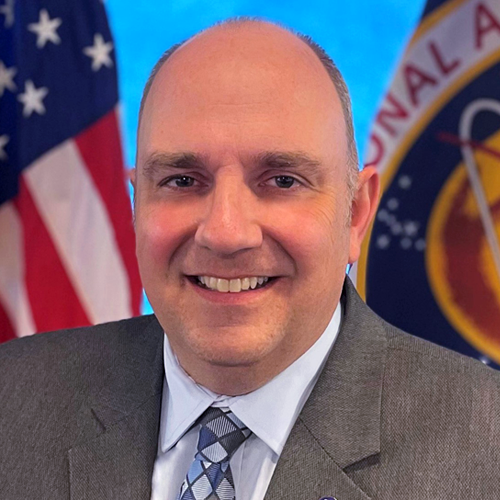
Kevin Metrocavage
Prior to being hired as a Flight Controller at NASA’s Mission Control Center at Johnson Space Center in Houston, Texas, Metrocavage was inspiring the next generation of explorers at the Mission Control at Space Camp. Metrocavage frequently noted his role as counselor at Space Camp as the “the best summer job in the world”. He passionately led students, adults, educators and even astronaut families (during prelaunch space shuttle events) through various Space Camp educational programs, while sharpening his own extensive knowledge of spaceflight history and science. Space Camp Programs focus on teamwork and leadership skills. Beginning with his counselor role at Space Camp, Kevin would not only promote those skills to his teams but would gain experiences of his own that would eventually land him a position at NASA/United Space Alliance in Mission Control to plan missions, develop training for Flight Controllers and Astronauts, and operate the International Space Station (ISS) throughout ISS assembly and beyond. His time at Space Camp honing those skills laid the foundation for what would become a notable career in human spaceflight operations and leadership roles. Metrocavage also utilized his conflict management experience as counselor during his various roles at NASA where he served as a Flight Controller, Instructor, and Manager for the ISS Motion Control Systems group. As an Attitude Determination and Control Officer (ADCO), Metrocavage planned, coordinated, monitored, and executed ISS maneuvers in support of a variety of complex operations. As Instructor, Metrocavage was responsible for training astronauts, cosmonauts, and peers on ISS systems. He has recognized that explaining science topics and history began during his time as Space Camp Counselor. It was also during his counselor tenure that he would be exposed to various levels of students from throughout the United States and foreign countries. This diversity of students would prove beneficial as he would go on to work closely with ISS partners from around the world. He supported 18 ISS Assembly Missions and over 66 ISS Expeditions from Houston, Huntsville, Titusville, Washington D.C. and internationally in Moscow, Russia. His passion for educational outreach and Science, Technology, Engineering, Arts & Mathematics (STEAM), would lead him to accept the role as Executive Officer for NASA’s Office of STEM Engagement at NASA Headquarters (HQ). In this role, he supported the Associate Administrator by collaborating with NASA Centers, Mission Directorates, government agencies, and private corporations to achieve NASA Education objectives. Metrocavage currently serves as the ISS Operations Manager for the Space Operations Mission Directorate (SOMD) at NASA Headquarters in Washington, DC. In this role, he is responsible for maintaining overall situational awareness of the planning and execution of ISS complex operations for SOMD. Metrocavage manages the NASA Headquarters Space Operations Center (HQ SOC), a facility that enables monitoring of human spaceflight operations, and provides input and status to NASA leadership as well as external agencies when appropriate. Additionally, Metrocavage integrates operations support from the HQ SOC for Artemis missions as part of NASA’s return to the moon. He also provides a role in the agency’s focus on mission safety through his function as the Mishap Manager for SOMD and the Exploration Systems Development Mission Directorate. NASA has recognized Metrocavage with multiple individual and team awards, most notably the NASA Spaceflight Awareness Award, which is one of the highest awards, presented to NASA and industry personnel. He is also a 2021 recipient of the Purdue University School of Aeronautics & Astronautics Outstanding Aerospace Engineer award, the school’s highest-level award recognizing alumni who have demonstrated excellence in industry, academia, governmental service or other endeavors.
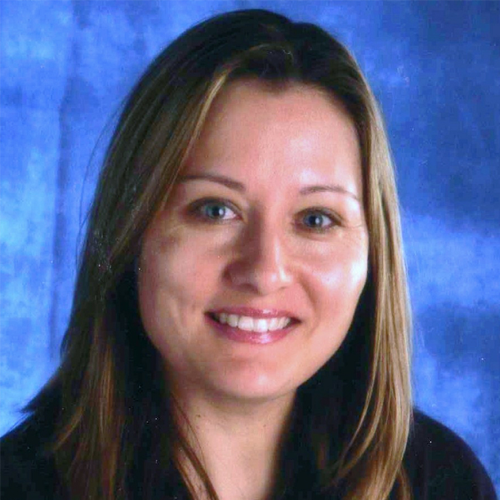
Maria Nickel
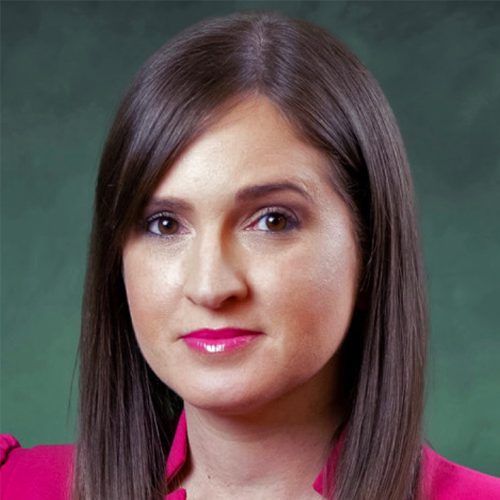
Eileen Velez
I have been blessed with a great profession and health, but with great privilege comes the great responsibility of helping others. My technical achievements and contributions to the engineering and aviation industry and my community involvement are the most rewarding experiences in my life because I can share them with family, friends, and colleagues. I am excited to share these with the Space Camp community as well. I will always be grateful for my science teacher that organized the Space Camp trip while I was in the 10th grade in the small town of Sabana Grande. A significant part of my engineering journey and my success in life has been because of Space Camp and I tell my story at every STEM camp and event that I attend as a speaker for children. I remember selling many chocolates as a fundraiser so I could attend Space Camp and my mom and dad also sold “bacalaitos” at the town’s Christmas festival so I could attend Space Camp. My family had limited financial resources, so I learned very early on, the importance of sacrifice and work ethic to achieve my goals. And even though this was before attending Space Camp it was all part of the special experience that got me there!
I truly believe my success as an engineer in the aviation industry began as a Space Camp participant. In 2003, I graduated Magna Cum Laude with a Bachelor’s Degree in Civil Engineering from the University of Puerto Rico at Mayagüez (UPRM). During my college years at UPRM, I was selected to participate in the NASA Marshall Space Flight Center Advanced Projects Office in the Undergraduate Research Program (USRP) in Huntsville, Alabama. My experience at Space Camp inspired me to apply for a NASA internship. During my time at Marshall, I was selected to extend my research program and I became a NASA Coop Student for two years. During my internship at NASA, I worked on the space elevator concept researching advanced structural materials and construction innovation as well as electromagnetic fields for vehicle launches. Upon graduation, I accepted a research civil engineer position as part of an Academic Excellence Scholar program with the U.S. Army Corps of Engineers (USACE), Engineer Research and Development Center in Vicksburg, Mississippi.
From 2003-06, I was a research civil engineer in the USACE ERDC Geotechnical and Structures Laboratory, Airfields and Pavements Branch in project management, research and development of pavement management, non-destructive testing, soil stabilization, and rubblization of concrete pavements for the Department of Defense.
In 2006, I changed paths and accepted a position with Kimley-Horn in Florida to work in the design and construction of airport infrastructure. My focus was on constructability and development of airport infrastructure projects to ensure the continued safe and effective operation of the airports during construction. I also served as Operations Manager for the Statewide Airport Pavement Management Program for the Florida Department of Transportation which included 95 public use airports in Florida and I was responsible for the construction cost estimating and fee proposals in state and federal airport funding.
I’ve also published more than 11 technical airfield pavement rehabilitation publications.
In 2014, I relocated to manage the Kimley-Horn Puerto Rico office and during my tenure I grew the office business winning multiple contracts with the PR Ports Authority, the San Juan Luis Muñoz Marin International Airport (SJU), the PR Highway and Transportation Authority, as well as private retail/commercial clients. I’ve managed multi-disciplinary projects ranging from aviation, telecommunications, permitting, structural and site assessments, retail land development and environmental.
In 2017, immediately after Hurricanes Irma and Maria, I led an assessment team for private retail clients to provide emergency structural and site assessments in PR and St Thomas. The projects included building and site structural assessments of more than 2.1 million square feet of commercial area. My team worked under emergency conditions with limited resources such as power, water, fuel, and communications and our work contributed to the PR rebuilding efforts.
In 2020, I was appointed as the first woman to become Secretary of the Department of Transportation and Public Works (DTOP) of Puerto Rico working in the Governor’s cabinet. I lead DTOP’s historical state and federal funding for the transportation system recovery from Hurricanes Maria and Fiona and lead public policy for the maintenance and rehabilitation of more than 5,000 miles of state roads, the multimodal systems including maritime, rail and buses as well as safety education and driver motor vehicle services in the island with a budget of more than $1.5 Billion.
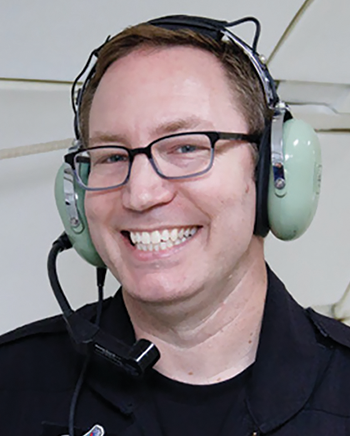
Tim Bailey
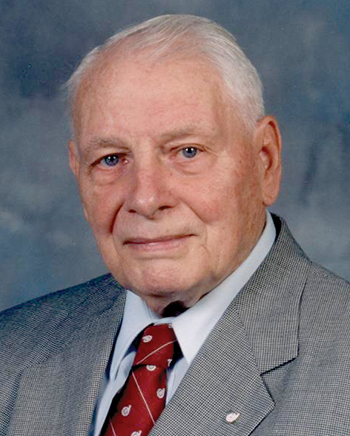
Konrad Dannenberg
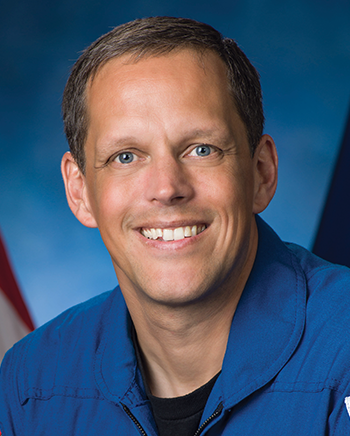
Bob Hines
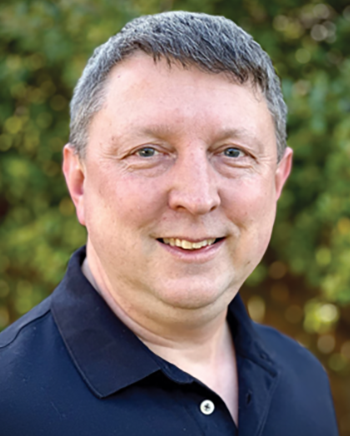
Justin Picchi
- Jared Isaacman
- Hayley Arceneaux
- Chris Sembroski
- Dr. Sian Proctor
- Hall of Fame Ceremony
- Inspiration4 Fireside Chat
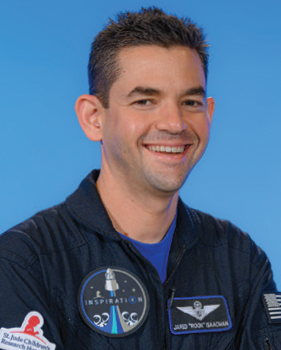
Jared Isaacman
Jared Isaacman is the founder and CEO of Shift4 Payments (NYSE: FOUR), the leader in integrated payment processing solutions. He started the company in 1999 from the basement of his family’s house when he was only 16 years old and has built it into an industry-leading payments technology company with over 1,200 employees. Isaacman is considered one of the industry’s most influential business leaders and has been featured by various media outlets and publications including Forbes, The Today Show, Fox Business News, ABC News, Bloomberg, Businessweek, Inc. Magazine, and Fast Company, among others.
An accomplished jet pilot, Isaacman is rated to fly commercial and military aircraft and holds several world records including two Speed-Around-The-World flights in 2008 and 2009 that raised money and awareness for the Make-a-Wish Foundation. He has flown in over 100 airshows as part of the Black Diamond Jet Team, dedicating every performance to charitable causes. In 2011, Isaacman co-founded what would become the world’s largest private air force, Draken International, to train pilots for the United States Armed Forces.
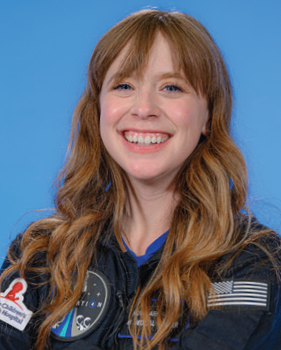
Hayley Arceneaux
When Hayley was 10 years old, one of her knees began to ache. Her doctor thought it was just a sprain, but a few months later, tests revealed Hayley suffered from osteosarcoma, a type of bone cancer. Her family turned to St. Jude Children’s Research Hospital for her treatment and care, which included chemotherapy and a limb-saving surgery. She is now finished with treatment and thriving. She obtained an undergraduate degree in Spanish in 2014, and obtained her Physician Assistant (PA) degree in 2016. She now works at St. Jude – the very place that saved her life – as a PA with leukemia and lymphoma patients.
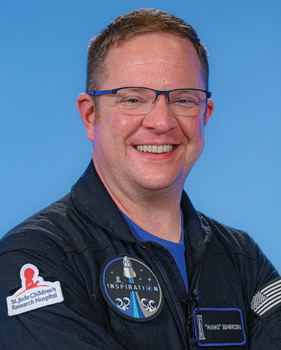
Chris Sembroski
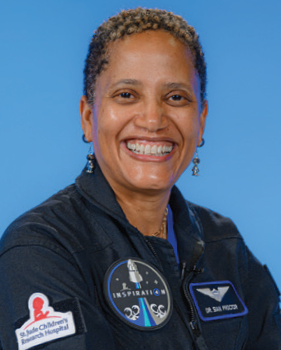
Dr. Sian Proctor
Hall of Fame Ceremony
Inspiration4 Fireside Chat
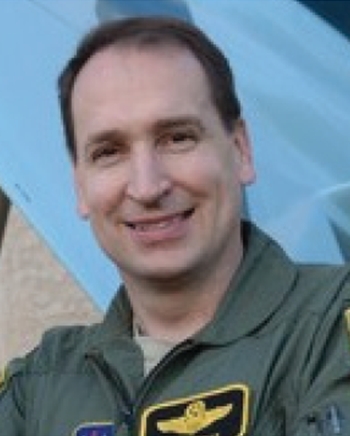
Brian Dudas
Colonel Dudas was assigned to the North Atlantic Treaty Organization (NATO) Combined Component Air Headquarters at Ramstein Airbase, Germany as a Project Officer in the Tactical Evaluations Division and deployed from there to Kandahar Afghanistan as part of the NATO International Security Assistance Force (ISAF). After leaving his assignment in Germany in 2007, Colonel Dudas joined the 12th Operations Support Squadron as its Operations Officer then became the Unit Commander while responsible for all of Randolph AFB’s air traffic control, airfield management, weather, airspace management, and aircrew flight equipment for all 12th Operations Group (OG) training, simultaneously flying as a Introduction to Fundamentals Instructor Pilot.
In 2011 Colonel Dudas was selected as the 12th OG Deputy Command responsible for 7 Flying and Weapons Officer Training Squadrons which fly the T-1 Jayhawk, T-6 Texan II, AT-38C Talon and T-38C Talon training aircraft. After completing Dutch Language Training at the Defense Language Institute, he was selected for the prestigious Higher Staff Officer Course at the Belgian Royal Military Academy in Brussels Belgium where he secured the Commandant’s Award for Outstanding International Officer. Colonel Dudas followed up this achievement by being assigned as the Executive Officer to the Deputy Chairman of NATO’s Military Council (The Deputy Chairman of NATO’s Military Council is the principal Military Advisor to the Deputy Secretary General of NATO). Colonel Dudas next assignment found him as the Deputy Wing Commander of the 48th Fighter Wing (AKA “The Statue of Liberty Wing”) at RAF Lakenheath U.K. where Colonel Dudas Commanded nearly 5,700 active-duty military members, 2,000 British and U.S. civilians, including a geographically separated unit at nearby RAF Feltwell U.K. in addition to supporting two squadrons of F-15E Strike Eagle and one squadron of F-15C Eagle fighter aircraft. Colonel Dudas culminated his Air Force career as the Force Applications Chief at Headquarters, US Air Force Pentagon.
Scooby’s honors and awards are too numerous to mention but include Masters of Science in Technology Management, University of South Dakota (Summa Cum Laude), US Air Force Squadron Officers School (Distinguished Graduate, Outstanding Contributor), Masters of Science Operations Research, Air Force Institute of Technology (AFIT) (Distinguished Graduate), Masters of Arts in Political and Military Science, Belgian Royal Military Academy (Commandants Award Winner, Outstanding International Officer).
Scooby Dudas retired with his Wife, the former Mercedes Thomas (a former Space Camp Counselor) to Rainbow City, Alabama where they currently reside.
Scooby Dudas is now a Commercial Pilot with Delta Airlines based out of Atlanta Ga. Scooby Dudas has over 2,600 Total Flying Hours with 210 of those being in Air Combat. Scooby is fully qualified in the F-15 Eagle, B-1B Lancer, AT-38 Talon, T-38 Talon Trainer, T-37 Tweet and Airbus A320, A319, A321 Passenger Jets.
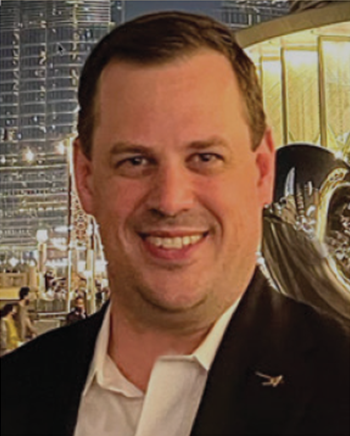
Derek Hodgins
Derek Hodgins leads Strategic Integration for Lockheed Martin Commercial Civil Space, and is Director of Strategy & Business Development for Lockheed Martin Corporation’s Lunar Infrastructure Services enterprise. In this capacity, he is responsible for leading the Corporation’s Lunar Mobility Vehicle (LMV) initiative, a commercially-developed vehicle being built in partnership with General Motors and MDA.
Previously, Mr. Hodgins was Director of Business Development for Human Exploration and Operations at Northrop Grumman. In that role, he was responsible for all aspects of NG’s efforts from Low Earth Orbit to deep-space, including Cygnus Commercial ISS Resupply, the Habitation and Logistics Outpost (HALO), Commercial LEO, and other space communications and transportation systems, until 2020.
Prior to joining Lockheed Martin, Mr. Hodgins led Strategic Investments Division planning of Human Exploration and Space Technology at NASA Headquarters in Washington, D.C., served as a Flight Controller in Mission Control for the Space Shuttle, and as a Systems Engineer on numerous NASA robotic spacecraft.
Mr. Hodgins graduated from Syracuse University with a B.S. in Aerospace Engineering, from the University of Michigan with an M.E. in Space Systems Engineering, and from George Washington University with an M.B.A.
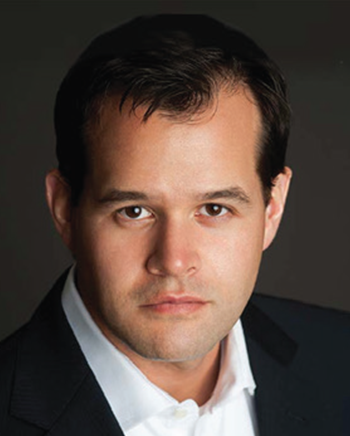
Peter Marquez
Peter Marquez is the Head of Space Policy at Amazon Web Services where he oversees global space policy activities for Amazon Web Service’s space products and services.
Peter previously was the Managing Partner of Andart Global, U.S., the Vice President of Global Engagement for Planetary Resources, and the Vice President for Strategy at Orbital Sciences Corporation. Peter served at the White House for the three previous Administrations. Peter was the Director for Space Policy for Presidents Bush and Obama and a Senior Advisor to the National Space Council. Peter was responsible for the development, implementation, and coordination of the U.S. national space policies. Peter has also worked with foreign governments to establish their own space agencies, assist in the writing of their national space policies, and create the interagency processes to execute national space programs.
Before his time at the White House, Peter served for a decade in the Pentagon on a variety of space and classified programs for the Air Force and Office of the Secretary of Defense. He served in requirements, acquisition, operations, and policy roles and served as the Director of Special Programs for the Under Secretary of Defense for Policy.
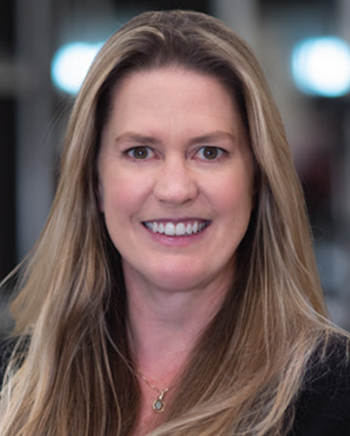
Mandy Vaughn
Mandy Vaughn founded GXO, Inc. in 2021 to accelerate the pace of change across the space industry. The goal is supporting new commercial space ventures quickly navigate the start up environment to start delivering capabilities and missions that matter for commercial and government customers. She was selected to serve on the National Space Council’s User Advisory Group when it was re-instituted in 2018, where she helps to streamline coordination and cooperation across the U.S.’ space enterprise. Mandy is formerly President & CEO of VOX Space. Mandy originally joined Virgin Orbit, VOX Space’s parent company, in 2015. As Senior Director of Business Development and Mission Management, she supported business development on the LauncherOne program for both government and commercial customers and served as mission manager for customers including OneWeb and NASA, in addition to spearheading the creation and registration of VOX Space.
Prior to joining Virgin Orbit, Mandy was with General Dynamics Mission Systems’ Space and Intelligence Systems Directorate, where she was responsible for the space control and space protection investment portfolios and analog-to-digital transitions for a variety of SIGINT payload families. She successfully initiated development programs for the next-generation space based GPS receiver and managed the internal investment of GPS payload development efforts.
Prior to joining General Dynamics, she was a developmental engineer and program manager in the Air Force and a Director with Kinsey Technical Services. She primarily supported programs in the Space Superiority Systems Directorate (SMC/SY) at Los Angeles AFB, CA and earlier the ICBM system program office at Hill AFB, UT. In the Space Superiority mission are, she was the ground segment lead and chief engineer on the Space-Based Space Surveillance program, and then supported a multiple of Space Situational Awareness and command and control programs supporting integration of requirements and demonstrations between the DoD and the intelligence community. She supported the NRO AS&T and DIA Directorate of Science and technology in a variety of collection campaigns that spanned various collection systems phenomena to demonstrate new systems and operational concepts for critical space operations.
Mandy has a BS in Mechanical Engineering and an MS in Aeronautics and Astronautics, both from Massachusetts Institute of Technology (MIT).
Hall of Fame Ceremony
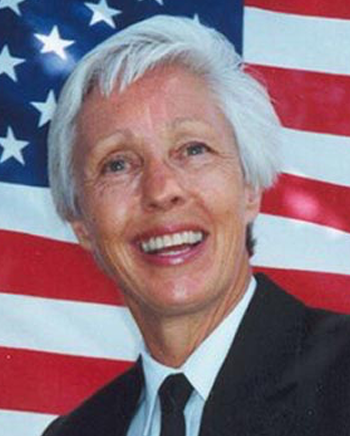
Mary “Wally” Funk
- Taos, New Mexico
- Bachelor of Science, Oklahoma State University
- Adult Space Academy, 1991 and 2001
From the time she jumped off her father’s barn wearing a Super Man cape at the age of 4, Mary “Wally” Funk dreamed of flying. She became a civilian flight instructor for the U.S. Army by the age of 20, and at 21, Wally volunteered for the Mercury 13, a group of women who underwent the same training as the Mercury Astronauts. While the Mercury 13 never got the chance to fly in space, her life’s work reflects Wally’s profound love of aeronautics. She became the first female Air Safety Investigator for the National Transportation Safety Board and was a long-time flight instructor. She has flown gliders, jumped from airplanes, won air races and served as a Goodwill Ambassador for flight all around the world.
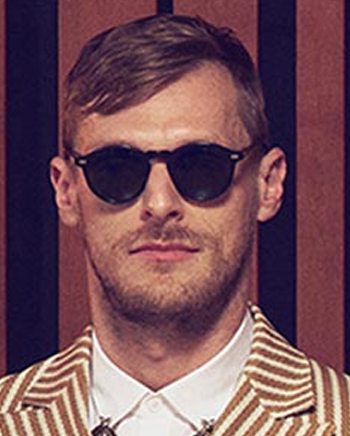
Casey Harris
- Hometown: Ithaca, New York
- Space Camp for Interested Visually Impaired Students, 2000 and 2001
Casey Harris is the first Space Camp for Interested Visually Impaired Students (SCIVIS) alumnus to be inducted into the Space Camp Hall of Fame. Fascinated with aviation since his godfather took him on an airplane ride as a young teen, Casey jumped at the chance to attend Aviation Challenge when he learned about SCIVIS. A two-time graduate and Top Gun award recipient, Casey said attending SCIVIS was “one of the most formative experiences” of his life. He continues his long-time interest with aviation and space, even giving his son the middle name “Orion.” The constellation is also the name of the second album by Casey’s band, X Ambassadors. Casey is the keyboardist in the successful rock band, whose members include his brother, Sam, on vocals and Adam Levin on drums.
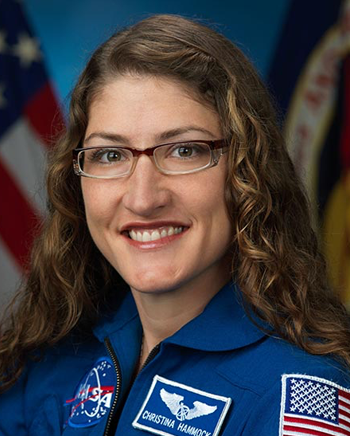
Christina H. Koch
- Jacksonville, North Carolina
- Bachelor of Science, Electrical Engineering; Bachelor of Science, Physics; Master of Science, Electrical Engineering, North Carolina State University
- Space Academy and Advance Space Academy 1992, 1993, 1994, 1995, 1996
Five-time Space Camp graduate, Christian H. Koch is the fifth Space Camp alumna to fly in space. Christina launched to the International Space Station in March 2019 as a member of Expedition 59 and 60. She worked as an electrical engineer at Goddard Space Flight Center’s Laboratory for High Energy Physics before being selected as one of eight members of the 21st NASA Astronaut Class. She has worked in space science instrument development as well as serving as a research associate with the United States Antarctic Program. While board the ISS, she is expected to break the record for the longest single spaceflight for a woman.
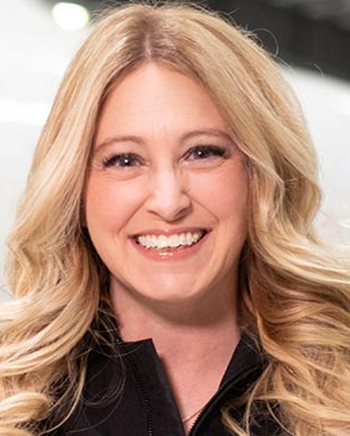
Beth Moses
- Northbrook, Illinois
- Bachelor of Science, Aerospace Engineering; Master of Science, Aerospace Engineering, Purdue University
- Adult Space Academy 1989
Beth Moses’ trip to Adult Space Academy in 1989 included a memorable training session in the Underwater Astronaut Trainer. Then NASA-engineer turned best-selling author Homer Hickam was her trainer. Beth is now flying high as the Chief Astronaut Instructor and a commercial astronaut for Virgin Galactic, which is working to make commercial space travel a reality. Before joining Virgin Galactic, Beth was a senior engineer at NASA Johnson Space Center’s EVA Project Office. In her February 2019 flight aboard Virgin Galactic’s SpaceShipTwo Unity, Beth became the first woman to reach space aboard a commercially launched space vehicle and is the first woman to receive the Federal Aviation Association’s commercial astronaut wings.
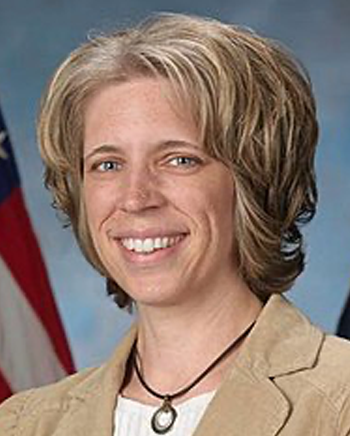
Dr. Tara Ruttley
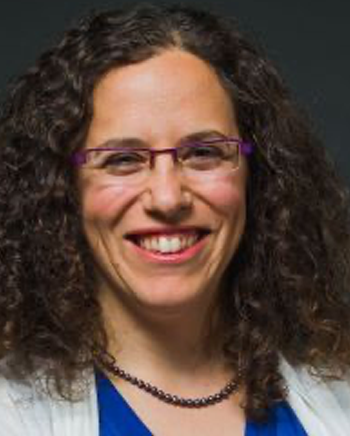
Dr. Erika Wagner
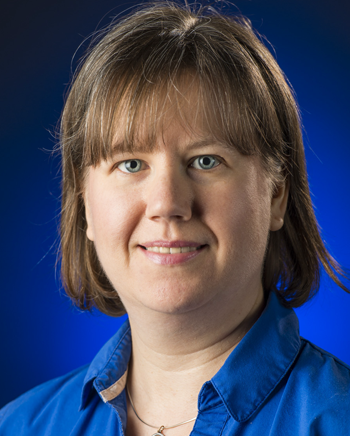
Dr. Sarah Noble
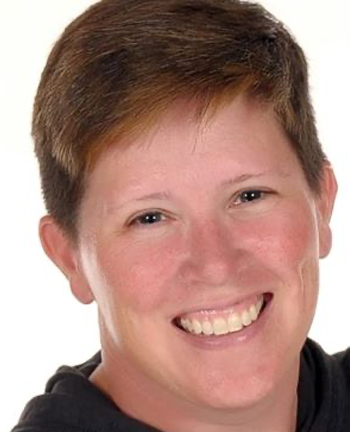
1st Lt. Tara Sweeney, USAF, Retired
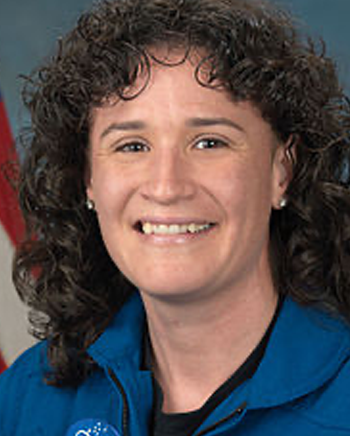
Dr. Serena Auñon
- Fort Collins, CO
- The George Washington University, B.S. University of Texas Medical Branch at Galveston, M.P.H University of Texas Health Science Center at Houston, M.D.
Dr. Serena Auñón-Chancellor’s Space Camp mission position as medical officer was prophetic. Fast forward 25 years, and Serena will be launching on a Soyuz rocket as a member of Expedition 58/59 to the International Space Station. Space Camp was more than a much-desired 16th birthday gift for Serena. It confirmed what she thought she already knew. She was going to be an astronaut. “I felt very confident walking out after that week,” she said. “It reaffirmed what I wanted to become.” Serena holds a bachelor’s degree in electrical engineering from The George Washington University and attended medical school at the University of Texas – Health Science Center at Houston. She is board certified in Internal and Aerospace Medicine and was a flight surgeon to both space shuttle and ISS astronauts before being selected for the 2009 Astronaut Class. In her own astronaut career, Serena has searched for meteorites in Antarctica and operated the Deep Worker submersible on the NEEMO 16 mission. She also served aboard the Aquarius underwater laboratory during the NEEMO 20 undersea exploration mission. She is scheduled to launch to the ISS in November 2018.
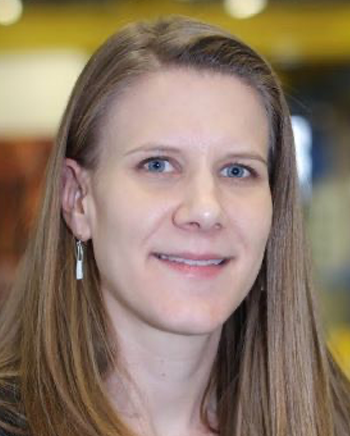
Dr. Michelle Christensen
- Tacoma, WA
- University of Alabama in Huntsville, B.S. Pennsylvania State University, Ph.D.
If her little brother hadn’t gotten sick on a trip to Disney World,Dr. Michelle Christensen might not be building rocket engines for Amazon founder Jeff Bezos’ Blue Origin. Her dad took 5-year-old Michelle to Kennedy Space Center for the day, and she remembers standing under a Redstone rocket and staring at the engine. She wanted to know how it worked. Her parents looked for every opportunity to encourage their daughter’s interests, and at 14, she flew across the country to Space Camp for the first time. “I remember getting to camp and meeting these kids from all over the world,” Michelle said. She had found her place. She came back in 11th grade and worked as a Space Camp crew trainer in college, which led her to transfer to the University of Alabama in Huntsville to study aerospace engineering. Through UAH, she got a research job at Marshall Space Flight Center and then went on to Pennsylvania State University for her Ph.D. in Mechanical Engineering. Today, she’s at the cutting-edge of the commercial space industry helping build reusable rockets. She’s also found the same kind of teamwork environment she loved at Space Camp. “It’s being part of a group of people who were excited about the same thing I was excited about,” she said.
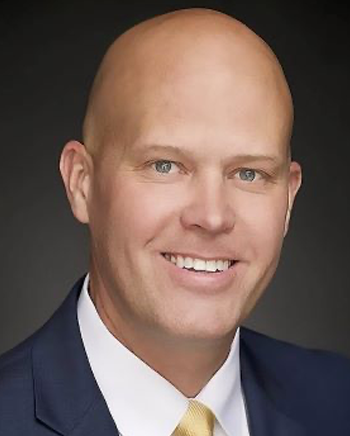
Major John Hecker
- Huntsville, AL
- B.A., Auburn University
Major John Hecker’s career as a U.S. Marine Corps pilot started late, but it quickly took off. John was 29 when he got the call on Sept. 11, 2001, to report to Quantico for officer training. He had been told he was too old to join, but the terrorist attacks that day changed everything. John was soon learning to fly a C-130, the big, four-engine aircraft he would ultimately operate as part of the fabled Blue Angels squadron. His father’s U.S. Army career took John’s family in and out of Huntsville several times, and John spent many days of his childhood at the U.S. Space & Rocket Center, first on nearly daily visits and later for Space Academy. “The U.S. Space & Rocket Center itself was a gigantic part of my childhood,” John said. In the Marines, he found the same kind of teamwork he remembered from Space Camp, and he revisited his team’s presenter role many times in the Blue Angels. In his three years on the squadron, he traveled almost 300 days a year, speaking to young people all over the country. His message was always to keep striving for what you want and to “recognize service to something greater yourself.” “It’s a great way to live your life,” he said.
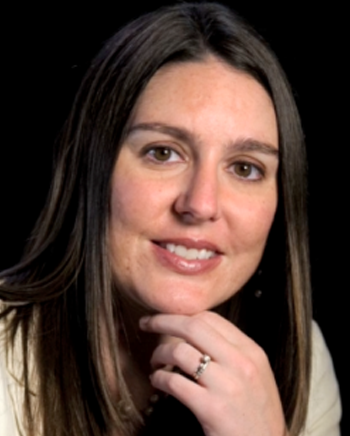
Dr. Jennifer Heldmann
- Syracuse, NY
- Colgate University, B.S.
University of North Dakota, M.S.
University of Colorado at Boulder, Ph.D.
Dr. Jennifer Heldmann was in third grade when she looked through a telescope and saw the moon up close. This was an actual place with mountains and craters, and she was “blown away.” Jennifer has been looking up ever since. A planetary scientist at NASA’s Ames Research Center, she is researching how we will one day live on the moon and Mars. Jennifer came to Space Camp her junior year in high school, a trip she still thanks her mom for making happen. “It was the first time I was surrounded by people like me,” she said. “I was in this place dedicated to space. It started to become a real thing.” Her work today takes her to hostile environments such as Antarctica to study water, and she works on space craft data, computer modeling and Earth analogs to help prepare for deep space flight. “It’s test before you fly, the Space Camp way,” Jen said. She has won many accolades in her career, including the NASA Exceptional Scientific Achievement Award and a NASA mentor award, but she counts the Space Camp Hall of Fame as her top achievement. “It’s like something that is instilled in your inner core of being since 10,” she said.
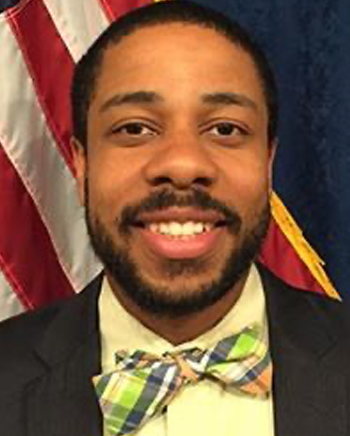
Jason Hopkins
- Norcross, Georgia
- B.S., Embry-Riddle Aeronautical University
M.S., George Washington University
In his aerospace career, Jason Hopkins has worked on satellite systems for Lockheed Martin and on NASA’s Orion spacecraft. He has managed the daily operations of the massive Vehicle Assembly Building at Kennedy Space Center and served as a NASA Fellow advising U.S. Sen. Bill Nelson in his capacity as Chairman of the Senate’s Science and Space Subcommittee. Capitol Hill is a long way, however, from the Georgia town where a little boy created an imaginary space ship from his mother’s laundry basket. Two trips to Space Camp in middle school cemented Hopkins’ desire for an aerospace career. He carried his Space Camp log book everywhere with him and would rattle off space shuttle facts to anyone who would listen. Hopkins is now a part of the next generation of space exploration as he helps develop a reusable launch craft for Masten Space Systems. He also hasn’t given up on going into space himself, this time as a NASA astronaut on a real space craft.
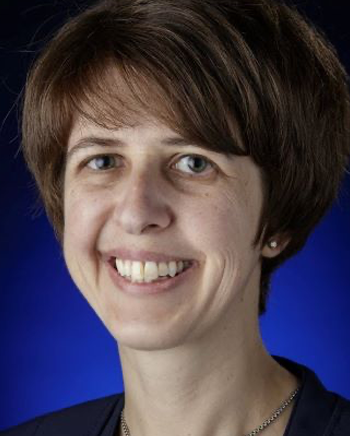
Dr. Amy Kaminski
- Pittsburgh, Pennsylvania
- B.A., Cornell University
M.A., George Washington University
M.S. Virginia Polytechnic Institute and State University
Ph.D., Virginia Polytechnic Institute and State University
When Dr. Amy Kaminski was 8, her grandfather sat up lawn chairs in the back yard so they could watch the Perseid meteor shower together. That’s when the “space bug” hit her, and she began reading everything she could about astronomy. At 11, she came to Space Camp for the first of four times and returned as a counselor while in college. Like many Space Camp trainees, Kaminski wanted to be an astronaut, but she ultimately realized she was more interested in the “how” and “why” of space exploration. She wanted to understand and contribute to the important choices the country must make in continuing the space program. With degrees in earth and planetary science, public policy and science and technology studies, Kaminski’s career has included developing the science and education budgets for NASA and advising NASA’s chief scientist on space policy matters, including ways to engage the public in NASA’s mission.
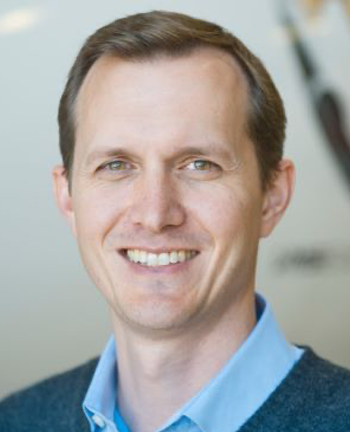
George Whitesides
- Newton, Massachusetts
- B.A., Princeton University’s Woodrow Wilson School of Public and International Affairs
M.Phil., Trinity College, University of Cambridge
Fulbright Scholar to Tunisia
George Whitesides is a self-avowed space nerd with a love of adventure. As a child, he would look at the sky on clear nights and think “I want to go up there someday.” He pored over astronaut biographies and came to Space Camp at 16, where he received the Right Stuff Award. A young man of many interests, however, he studied government and considered becoming a lawyer, but it was always the thought of space travel that excited him most. He became the Executive Director of the National Space Society before serving as Chief of Staff for NASA Administrator Charles Bolden. For his work, Whitesides received the Distinguished Service Medal, the highest honor the agency bestows. He is now the CEO of Virgin Galactic and The Spaceship Company, working with Sir Richard Branson on the development of commercial spaceflight vehicles. It’s on one of those crafts that Whitesides plans to make his first flight into space soon.
Space Camp
On June 6, 1986, Space Camp opened in theaters, igniting the desire of thousands of children to come to the real Space Camp®. Space Camp was the inspiration for the film in which a group of teens, a 12-year-old Max, a literal-minded robot named Jinx and a NASA-trained astronaut take off on an unexpected journey to space. In honor of the 30th anniversary of its release and the many children who wore out their VHS copies of the movie, the U.S. Space & Rocket Center inducted the film’s all-star cast — Kate Capshaw, Lea Thompson, Kelly Preston, Larry B. Scott, Joaquin Phoenix, who was known as Leaf at the time, Tate Donovan, Tom Skerritt, and Scott Holcomb who played “Hideo Takamini.”— into the Space Camp Hall of Fame. Scott, who is from Huntsville, continued on to work at the Space and Rocket Center for six years, becoming a Crew Trainer as well as building out a scholarship program to send students to Space Camp and continuing to champion the dream of the Space Camp program as a life long Urban Educator. Harry Winer directed Space Camp and five-time Academy Award winner John Williams composed the score for the movie, which was filmed in part on the grounds of the Rocket Center.
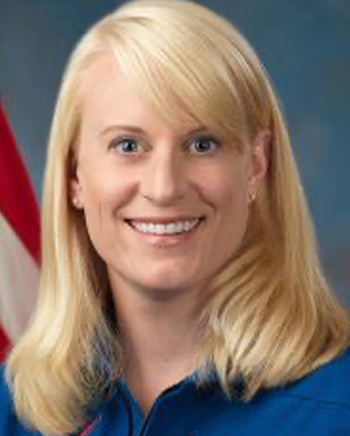
Kate Rubins
- Napa, Calif.
- B.S., University of California, San Diego
Ph.D, Stanford University
Dr. Kate Rubins is the third Space Camp® alumna to fly in space, with a scheduled launch to the International Space Station in the summer of 2016. Kate dreamed of becoming an astronaut as a child and did chores around the house to earn her trip to Space Academy® in seventh grade. She left camp knowing she needed to take as many math and science courses as she could, and that focus paved the way to her study of viral diseases and, ultimately, the NASA astronaut corps. Kate received a bachelor’s degree in molecular biology and a Ph.D. in cancer biology. Selected by “Popular Science” magazine as one of its “Brilliant 10” in 2009, Kate was a Fellow and Principal Investigator at the Whitehead Institute for Biomedical Research at the Massachusetts Institute of Technology before becoming a member of the 20th NASA astronaut class.
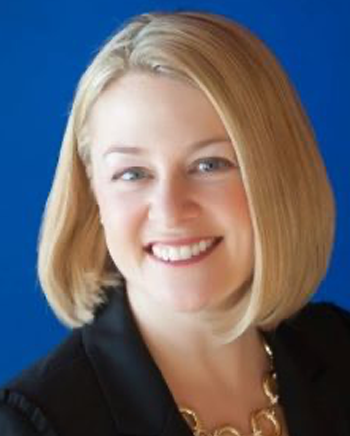
Elizabeth Keller Bierman
- Mahtomedi, Minn.
- B.S., Iowa State University
M.S., Iowa State University
M.B.A., Bentley University
When Elizabeth Bierman was in fourth grade, she brought her lunch to school in an astronaut lunchbox, a sign of her passion for space. She was a shy 12-year-old when she came to Space Academy®, and it was here that she met other trainees with the same fascination with space and science as she had. It’s also where she first understood that engineers are “problem solvers,” she said, and Space Academy launched an interest that led Elizabeth to study aerospace and systems engineering at Iowa State University. A senior project engineer at Honeywell Aerospace in Minneapolis, Elizabeth is also the recent past president of the Society of Women Engineers. When she talks with groups about how she became interested in engineering, “it all goes back to that lunch box and going to Space Camp,” Elizabeth said.
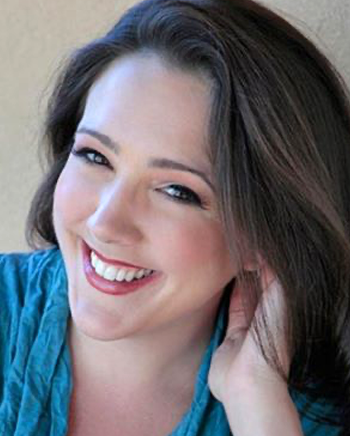
Susanna Phillips
- Huntsville, Ala.
- B.A, The Julliard School
M.A., The Julliard School
A three-time alumna of Space Academy®, Susanna Phillip’s reach for the stars takes place on the stage. One of the opera world’s rising sopranos, Susanna has appeared with leading orchestras around the globe and has made numerous appearances with the Metropolitan Opera, Lyric Opera of Chicago and Santa Fe Opera, just to name a few. She has won some of the world’s most prestigious vocal competitions and awards, including the Metropolitan Opera’s Beverly Sills Artist Award in 2010. Susanna is also the co-founder of Twickenham Fest, a chamber music festival that brings world-class musicians to her hometown each August.

Bobak Ferdowski
- Oakland, Calif.
- B.S., University of Washington
M.S., Massachusetts Institute of Technology
As a child, Bobak Ferdowsi was fascinated with science fiction and engineering. His favorite toys were LEGOS, and he had notebooks full of his car designs. As he got older, his interests turned to space, and he made a trip to Space Academy® at the age of 14. Two degrees in aeronautical and astronautical engineering followed, as well as a career at NASA’s Jet Propulsion Laboratory where Bobak was flight director on the Mars Curiosity team. As the world watched the historic landing of the rover on Mars, Bobak stood out as a colorful member of Mission Control. His Mohawk haircuts with stars and lettering cut into the side caught the attention of social media and even President Obama, who dubbed Bobak “Mohawk Guy.” Bobak is now helping plan a mission to Europa, one of Jupiter’s many moons.
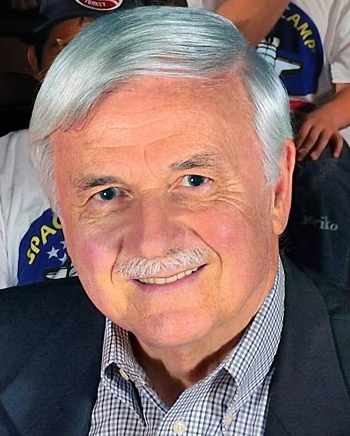
Kaya Tunger
- Los Angeles, California, and Izmir, Turkey
- BS in Civil Engineering, University of California at Berkeley
MBA in International Business, University of Southern California
Kaya was inspired to build a Space Camp in his native country of Turkey after learning about the opportunity in 1996 at a meeting about technology transfer with Turkish-American NASA engineer Ismail Akbay. At its opening in June 2000, Kaya dedicated Space Camp Turkey as a “Gift to the Youth of the World.” Since then, more than 150,000 youth and adults from 50 countries have attended the camp. Born and raised in Turkey, Kaya came to California at the age of 19 to pursue an education. The pinnacle of his successful career as a businessman and builder was in his home country when he established the Aegean Free Zone in 1990. This 500-acre industrial park in Izmir, Turkey, has attracted foreign investment from top international companies, created more than 20,000 jobs, and is the home of Space Camp Turkey. In 2002, Kaya established the nonprofit Global Friendship Through Space Education foundation, and has provided scholarships to more than 5,300 young people from 27 countries to attend Space Camp Turkey. In recognition of his philanthropic efforts, Kaya was awarded the Ellis Island Medal of Honor in 2004.
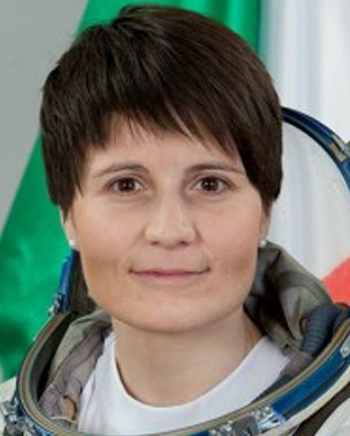
Samantha Christoforetti
- Milan, Italy
- MA, Technische Universität, Accademia Aeronautica
Samantha is a 1995 alumna of Space Camp in Huntsville, Captain in the Italian Air Force and currently an astronaut with the European Space Agency. Samantha graduated from the Italian Air Force Academy in Pozzuoli, Italy in 2005. From 2005 to 2006, she was based at Sheppard Air Force Base in Texas, USA. After completing the Euro-NATO Joint Jet Pilot Training, she became a fighter pilot and was assigned to the 132nd Squadron, 51st Bomber Wing, based in Istrana, Italy. From 2007 to 2008, she flew the MB-339 and served in the Plan and Operations Section for the 51st Bomber Wing in Istrana, Italy. In 2008, she joined the 101st Squadron, 32nd Bomber Wing, based at Foggia, Italy, where she completed operational conversion training for the AM-X ground attack fighter. Samantha has logged more than 500 hours flying six types of military aircraft: SF-260, T-37, T-38, MB-339A, MB-339CD and AM-X. Samantha was selected as an European Space Agency (ESA) astronaut in May 2009 and completed basic astronaut training in November 2010. In July 2012 she was assigned to an Italian Space Agency ASI mission aboard the International Space Station – Expedition 42/43, to be launched on a Soyuz spacecraft from Baikonur Cosmodrome in Kazakhstan in December 2014. This will be the second long-duration ASI mission and the eighth long-duration mission for an ESA astronaut. Samantha is currently completing her training on International Space Station (ISS) systems, the Russian Soyuz spacecraft, robotics and spacewalks. When not in training in the USA, Russia, Canada or Japan, Samantha is based at the European Astronaut Centre in Cologne, Germany.
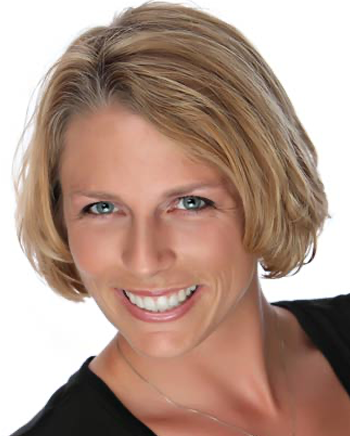
Michelle Ham
- Annapolis, Maryland
- Purdue University, Embry-Riddle Astronautical University
Michelle Ham is a 1991 and 1994 alumna of Space Camp in Huntsville, and former NASA Johnson Space Center employee. Michelle spent 10 years working at NASA for a contractor primarily in International Space Station (ISS) Flight Control as an Operations Planner and also as an Astronaut Instructor in the Daily Operations Group teaching astronauts about the Operations Local Area Network (Ops LAN) – the computer system, and the Inventory and Stowage System onboard ISS. During this time, Michelle trained nearly every astronaut in the corps for their expeditionary flight to ISS or their space shuttle flight to ISS. Michelle was also responsible for large portions of technical and basic instructional training for flight controllers and instructors not just in the U.S. but also at all of the International Partners as well. A few years ago, Michelle decided that she has a passion for inspiring students and chose to leave her work at JSC to become an independent consultant. Since then, she has done extensive work with the International Space School Educational Trust (ISSET) to inspire students about the STEM (Science, Technology, Engineering, Math) subjects through the use of space. Michelle has been instrumental in the creation of Mission Discovery and various leadership programs offered by ISSET. She is currently the Founder/President of Higher Orbits which is focused on inspiring students through space curriculum in the STEM (Science, Technology, Engineering and Math) subjects.
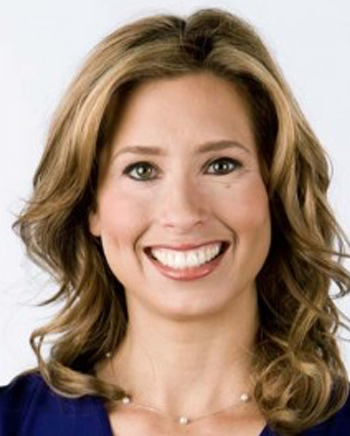
Stephanie Abrams
- Atlanta, Georgia
- BS, Florida State University, University of Florida
For self-described science geek and adventure-seeker, Stephanie Abrams, Space Camp was an obvious destination. She was hooked on science before camp and well before attending college, but it would be the devastation of Hurricane Andrew in 1992 that would lead her to a meteorology class at the University of Florida and the true passion of her life…weather. Abrams joined the team at The Weather Channel shortly after college as an on-camera Meteorologist and is now among the most recognized faces on television. Naturally gregarious, Stephanie is keenly aware of the unique platform she has to influence young people interested in STEM professions. She has artfully combined her passion, personality, and social media savvy to extend both her appeal and reach in making science cool. Stephanie Abrams is known for her fearless approach to life and learning and happily shares her discoveries with the world.
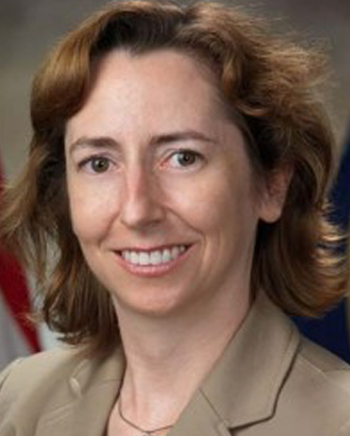
Dr. Liz Warren
- Houston, Texas
- BS, PhD, University of California Davis
“Liz” Warren always knew she wanted to be an astronaut, a dream she pursues to this day. Her hallmark is that she is not just dreaming the dream, she is working it. Already passionate about space and science, Warren took away other critical life skills from Space Camp – leadership and teamwork – and has applied them throughout an already brilliant career. Dr. Warren holds a Ph.D. in Molecular, Cellular and Integrative Physiology and is an expert at NASA Johnson Space Center, where she studies the effects of space flight on the human body. Today, Dr. Warren is the ISS Program Science Communications Lead working to communicate the research accomplishments of the International Space Station. Aside from contributing to the health, safety and comfort of the ISS crew, Warren spends about 100 volunteer hours every year speaking to students and teachers through NASA’s educational outreach efforts. Dr. Warren’s enthusiasm for space exploration is matched only by her devotion to inspiring the students now following her into a career in aerospace.
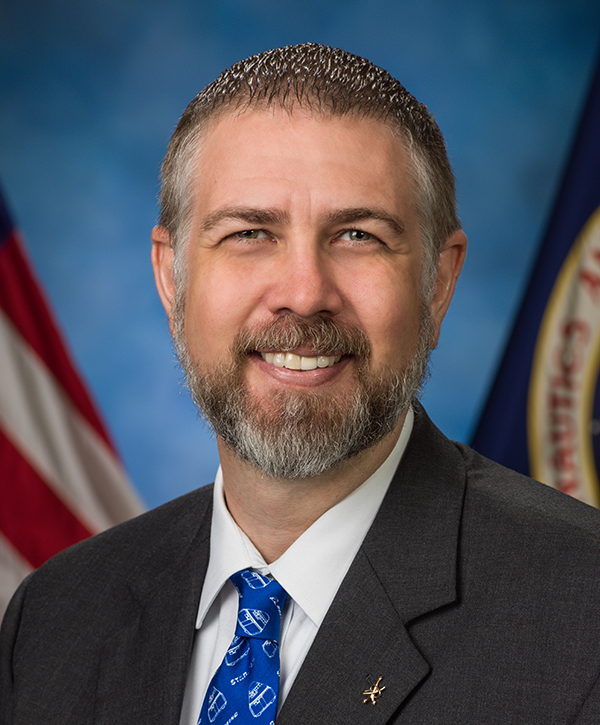
Ed Van Cise
- League City, Texas
- BS, University of Michigan
“Right Stuff” recipient Ed Van Cise knew before his trip to Space Camp that NASA would be the where of his future. But it was Apollo 16 Moonwalker Charlie Duke’s presentation at Camp that led him to the how and what. Van Cise left that week knowing that he wanted to be an Aerospace Engineer, and eventually work at Johnson Space Center in Mission Control. And not long after, that is exactly where he was. Van Cise committed to his path and in 2009 became the 78th Flight Director in NASA’s history. He took the call sign “Carbon Flight” and worked as Lead Flight Director for several different aspects of the International Space Station, Commercial Crew, and Artemis Programs. After completing the first Boeing Starliner crewed mission, Ed transitioned to NASA’s Gateway Program to manage the first launch of NASA’s lunar space station. Ed Van Cise methodically pursued his dream, earning awards and commendations for leadership, as well as respect from his peers. He continues that dream today, fully dedicated to NASA and the future of human space exploration.

Hoot Gibson
- Murfreesboro, TN
- BS, California Polytechnic State University
Retired U.S. Navy Captain and Space Shuttle Commander, Robert “Hoot” Gibson is an aeronautical engineer, test pilot, astronaut, and world record holder, and among the very best friends of Space Camp and Aviation Challenge. A rare mixture of affability, self-effacing humor, and a little hero swagger, combined with the authenticity that is born of an exceptional life, Hoot is the real deal. Gibson is a veteran of five shuttle missions, a recipient of numerous honors, awards, and decorations including the DOD Distinguished Service Medal, the Distinguished Flying Cross, and numerous international medals including the Yuri Gagarin Gold Medal, as well as a member of the Astronaut Hall of Fame. But, it isn’t Gibson’s resume that lands him in the Space Camp Hall of Fame. Instead it is his genuine, active dedication to its people and programs. Because he happily and effectively endorses Space Camp and Aviation Challenge selflessly offering his time and attention to any and all, Hoot Gibson is chief among our friends.
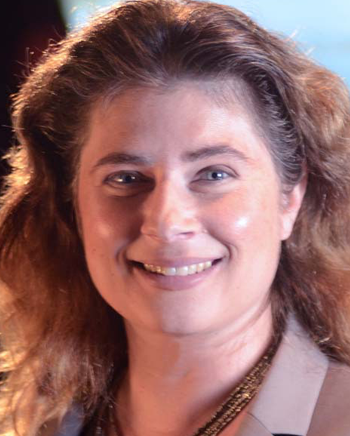
Dr. Michelle Thaller
- Waukesha, WI
- BA, Harvard University
PhD, Georgia State University
Assistant Director of Science for Communications at NASA’s Goddard Spaceflight Center in Maryland. In her current role, Michelle represents all of NASA’s science themes, from Earth science, the Sun and space weather, solar system exploration, all the way out to cosmology and the deep universe. Dr. Thaller attended Space Camp in the early 1980’s. She’s being inducted into the Space Camp Alumnus category.
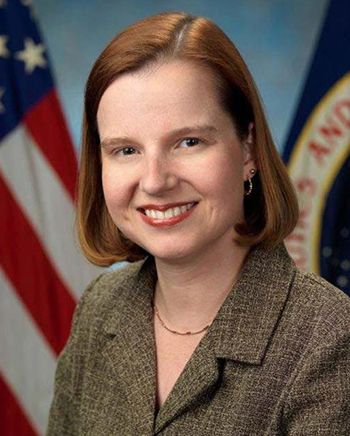
Dr. Valerie Meyers
- Bellville, TX
- BA, Texas A&M University
PhD, University of Alabama Birmingham
Dr. Valerie Meyers, is a board certified toxicologist in the Space Life Science Directorate at NASA’s Johnson Space Center in Houston. She studied under Dr. Terry Bray in the Center for Biophysical Sciences and Engineering where she helped prepare the dynamically controlled protein crystal growth experiment for flight on STS-105. Dr. Meyers graduated from the lab of Dr. Jay McDonald, where she studied the effects of modeled microgravity on bone-forming precursor cells. Dr. Meyers both attended Space Camp in the early 90’s and later worked as a crew trainer prior to completing her education and moving forward with her career. She’s being inducted into the Former Staff category.
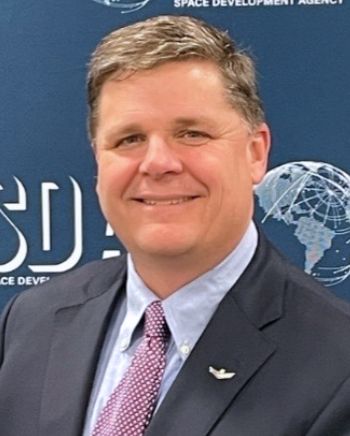
Lt. Colonel William Burke Hare III, USAF retired
- Atlanta, Georgia
- BA, Auburn University
MS, University of North Dakota
Mr. Burke Hare is the Site Director, Space Development Agency-South, Space Development Agency (SDA). Before assuming his position at SDA, Mr. Hare served in Industry as a Department of Defense Contractor supporting the Missile Defense Agency (MDA) primarily within the Directorate of Engineering and Directorate of Innovation, Science and Technology. In this capacity, Mr. Hare supported Missile Defense Flight Test Engineering, Missile Defense System Flight Test Failure Review Boards. Mr. Hare’s time at MDA culminated as the Senior Mission Engineer for the Missile Defense Agency’s Nanosat Testbed Initiative placing 4 Missile Defense CubeSats into low Earth orbit with 100% mission goal and 100% mission objective achievement across two missions. A retired US Air Force Officer with an extensive Space and Missile background, Mr. Hare previously held leadership roles at MDA, Air Force Space Command, and the Defense Threat Reduction Agency. Mr. Hare’s active-duty experience covers a wide range of Space Operations to include performing Crew Duties in the Global Positioning System, Minuteman III Intercontinental Ballistic Missile (ICBM) Operations, Minuteman III ICBM Maintenance, Joint Nuclear and Missile Defense Duty, along with other key staff and leadership positions. Mr. Hare earned a M.S. in Space Studies from the University of North Dakota and a B.A. in Political Science from Auburn University. Mr. Hare is an Eagle Scout.
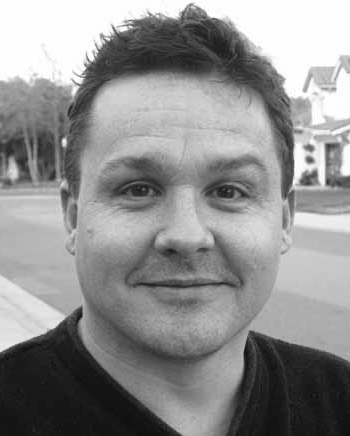
Francis French
- Oceanside, California
- BA, University of North London, England
PGCE, Brunel University
Although originally from Manchester England, Francis French has spent more than a decade working to make science and technology accessible and understandable to family audiences in museums and science centers here in the United States. Mr. French, a former SPACE ACADEMY LEVEL II trainee, showed an early and significant interest in space and space history. So, it is no surprise that his professional endeavors have been primarily focused on Spaceflight and Astronomy. His work has included regular collaborations with NASA, retired astronauts, notable astronomers, and astronomical observatories around the world. Having worked as the Director of Events with Sally Ride Science and Director of Education for the San Diego Air & Space Museum, it is no wonder that Mr. French is a sought-after contributor of articles to aerospace magazines primarily in the area of manned spaceflight history. In addition to being the co-author of both Into that Silent Sea and In the Shadow of the Moon, Mr. French also designed a banner that flew aboard the Space Shuttle Columbia on its final successful mission. As a SPACE ACADEMY graduate, Francis French has remained true to his first love and continues to pursue his passion to the benefit of thousands of lifelong learners.
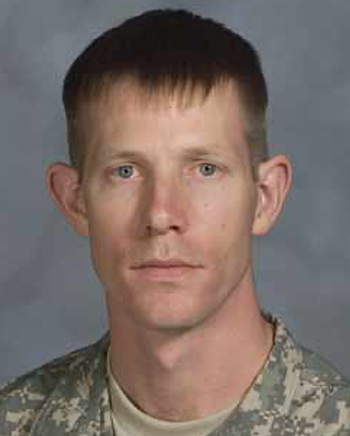
Major J. David Hnyda, US Army
- Snellville, Georgia
- BS, Auburn University
Eagle Scout and former SPACE CAMP® trainee and crew trainer, David Hnyda, was part of the SPACE CAMP family for more than a decade. Although that time included him having the distinction of being a Right Stuff winner as both trainee and crew trainer, his life since SPACE CAMP is surely the envy of every AVIATION CHALLENGE® trainee that has ever attended. While earning his degree in Mechanical Engineering, Major Hnyda was in Army ROTC. He began early making his mark by completing the Army’s Airborne, Air Assault, and Northern Warfare Schools. Following graduation, Major Hnyda joined the Air Calvary flying the OH-58D helicopter. He has spent the last decade and more than 1,150 combat hours serving in support of the Iraq War as an Air Mission Commander. Most recently, Major Hnyda was selected as a member of Class 139 at the U.S. Naval Test Pilot School. U.S. Army Major David Hnyda has a long history of distinguishing himself at every turn and is living proof that dreams are made of vision, dedication and hard work.
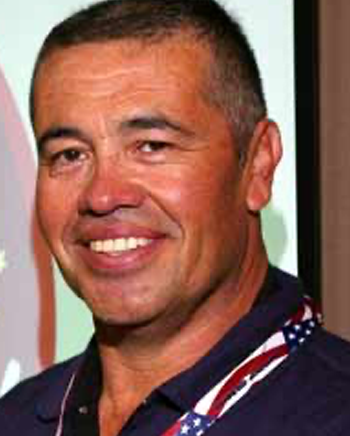
Danny R. Jaques
- Ignacio, Colorado
- BS, Fort Lewis College
Danny Jaques has been a science teacher at Ignacio Junior High School for nearly twenty-five years. For more than half of those years, he has been a veritable dynamo and perhaps SPACE CAMP’s most effective un-official ambassador. A life-long resident of Colorado, Danny has worked tirelessly to ensure that the children in that area are not only aware of SPACE CAMP – but have the opportunity to take advantage of the educational opportunities it offers. As a Life Member of the National Science Teacher Association, President of the Ignacio Community Historical Society, member of the Mars Society, and Teacher Liaison Officer for the U.S. Space Foundation, Danny somehow found time to establish the Jaquez Rocket Ranch and Ignacio Space Camp. Danny’s organization has, over the years, helped literally hundreds of students attend SPACE CAMP. His natural optimism, enthusiasm and utter “joie de vive” make Danny a magnet for anyone that shares an interest in space and aviation. He is a true friend to SPACE CAMP and to all the young people whose lives are touched by his irrepressible spirit.
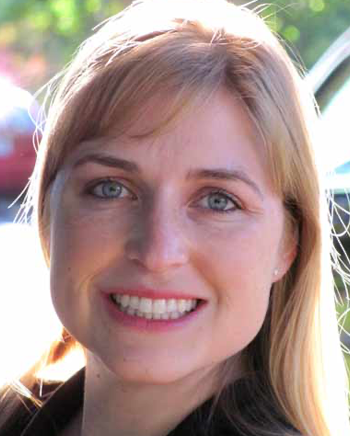
Andrea M. Hanson, PhD
- Lake Park, Minnesota
- BS, University of North Dakota
- MS, University of Colorado
- PhD, University of Colorado, Boulder
To say that former ADVANCED SPACE ACADEMY® crew trainer, Andrea Hanson, has been persistent in pursuing her interest in Science and Engineering may be the greatest of understatements. Although Dr. Hanson’s enthusiasm for Space Life Science began during her freshman year at college, she credits her time spent as an instructor at SPACE CAMP as the launch pad for her research career in that field. Following an internship with Boeing Satellite Systems, Dr. Hanson worked as a graduate student with BioServe Space Technologies at the University of Colorado. It was here that she realized the dream of so many trainees, when five years of research culminated in a space shuttle experiment that flew aboard STS-118 in August of 2007. Today, Dr. Hanson continues her relentless pursuit as a post-doctoral research scientist and engineer in the Department of Orthopaedics and Sports Medicine at the University of Washington, Seattle. Her primary efforts are focused on developing technology to monitor musculoskeletal health in astronauts during long-duration space missions to the Moon, Mars, and beyond. Dr. Hanson is a walking testament to what is produced at the fantastic intersection of drive, determination and passion and is a role model for anyone with a dream.
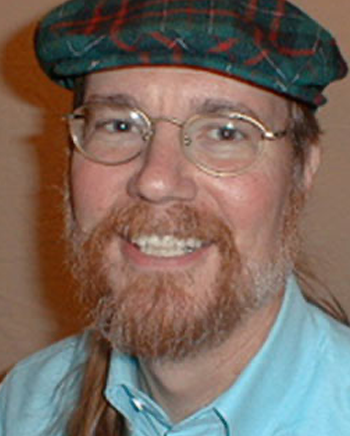
Jim Allan
- Austin, Texas
- BS, M.Ed., Ph.D., University of Texas, Austin
As the accessibility coordinator at the Texas School for the Blind and Visually Impaired, Jim Allan may be custom made to be the wizard behind the curtain of SPACE CAMP® for Interested Visually Impaired Students (SCI-VIS). He has served in that capacity for almost 20 years. In addition to maintaining the SCI-VIS website and coordinating the attendance of more than 200 blind and visually impaired students to SPACE CAMP, Jim serves as the technical expert for the program. Jim’s expertise supported SPACE CAMP’s development of mission software usable by blind and visually impaired students. It is no wonder that Jim adds the SPACE CAMP Hall of Fame honor to the other state, national and international honors he has received for his significant contributions to the visually impaired community and a more accessible world.
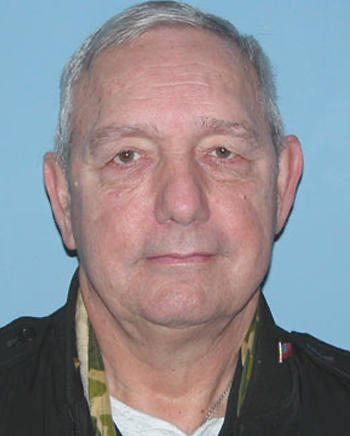
SGM Jerry Gleason, Ret.
- Peoria, Illinois
Both legend and mentor to an entire generation of AVIATION CHALLENGE trainees and staff members, Retired U.S. Army Veteran, Sergeant Major Gleason is part of the reason AVIATION CHALLENGE enjoys such a high number of repeat trainees. Having proudly served his country for 30 years, he has spent his retirement serving the USSRC as an employee and as a volunteer. A highly-decorated combat veteran and survival expert, SGM Gleason is the author of the AVIATION CHALLENGE Land Survival training and has inspired more than a few young men and women to follow their dreams of pursuing a military career. As a 4-time Bronze Star recipient, 3-time Purple Heart recipient, and a 2-time Meritorious Service Medal recipient, SGM is more than merely authentic. To those who proudly wear the AVIATION CHALLENGE wings, SGM Jerry Gleason is the bona fide, genuine article.
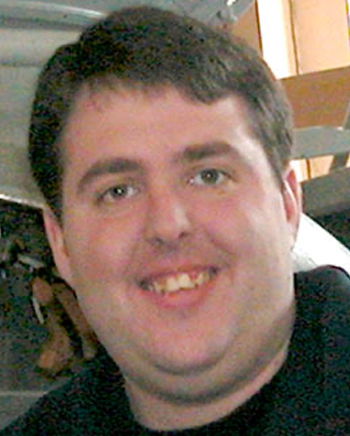
Robert Pearlman
- West Orange, New Jersey
- University of Maryland, College Park
An accomplished journalist, sought-after space history expert and respected appraiser of space memorabilia, Robert Pearlman was one of the first to recognize the Internet as a means of promoting space exploration. A six-time SPACE CAMP graduate that has successfully turned his passion into his profession, Pearlman has spent the past decade developing into the leading online publication and community for space history enthusiasts. Prior to his current roles as collectSPACE editor and contributing writer for SPACE.com, Pearlman created and worked on numerous other websites, including the award-winning Ask An Astronaut and the original BuzzAldrin.com, the official website of the Apollo 11 moonwalker. A board member and advisor to numerous foundations and boards dedicated to space including the National Space Society, Astronaut Scholarship Foundation, the Students for the Exploration and Development of Space (SEDS) and the U.S. Space Walk of Fame, Robert Pearlman possesses a rare combination of zeal, expertise and vision and continues to be an avid supporter and effective advocate of the space program.
- Oscar Holderer
- Marlenn Maicki
- Lisa DeVries
- Vincent Vazzo
- Major Phillip A. “Ritz” Smith
- Josh Whitfield
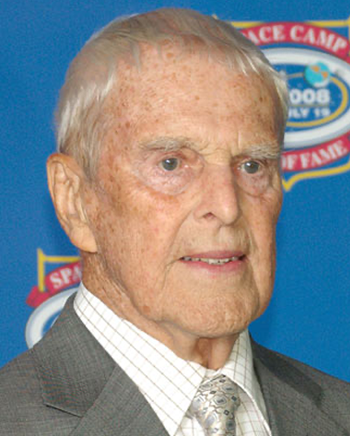
Oscar Holderer
One of the original members of the von Braun Rocket Team, Holderer not only helped put men on the moon but also made it possible for thousands of would-be astronauts to learn all about space travel. His realistic design of such SPACE CAMP® mainstays as the Multi-Axis Trainer, the 5DF, and the 1/6th gravity trainer have allowed more than half a million youngsters over two decades to experience astronaut training on equipment modeled after actual NASA training equipment. Holderer is also responsible for helping ensure that millions of Alabama visitors traveling I-65 are greeted by a Saturn IB Rocket proudly proclaiming Alabama’s place in history as the Birthplace of Manned Space Flight.
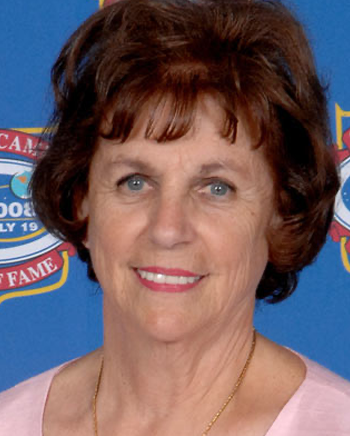
Marlenn Maicki
- West Bloomfield, Michigan
- BS, Wayne State University
MAT, Oakland University
A devoted career educator, Mrs. Maicki does more than teach…she inspires. As a fifth grade science teacher at Detroit’s Country Day School, she is legendary for her insistence that science be learned not from a text book, but by doing, seeing, and experiencing. 2009 marked 22 consecutive years that Mrs. Maicki has led her entire 5th grade class – and most of their parents – on an annual trek to SPACE CAMP. With “the heart of a child and the creativity and drive of an award-winning teacher,” she has inspired literally thousands of students to dream big and to work to make those dreams a reality.
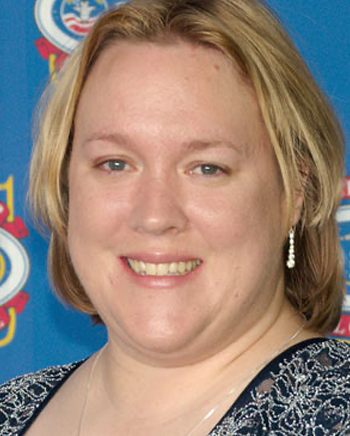
Lisa DeVries
- Cocoa, Florida
- BS, Embry-Riddle Aeronautical University
MS, Columbia Southern University
As a child, she put glow-in-the-dark stars on her ceiling and dreamed of working in the space program. As a teenager, she attended SPACE ACADEMY® and began a hot pursuit of her childhood dream. As a young adult, she continued that pursuit and shared her love of space as an Advanced Space Academy® crew trainer. Today, Lisa DeVries is a wife and mother of two and a member of Operations Safety at Kennedy Space Center. She has realized the dream…she has been among the last to leave the launch pad prior to each shuttle mission – and one of the first on the runway upon the shuttle’s return. As the voice that gives the safety “go-no go” for Launch Control, DeVries is living her dream.
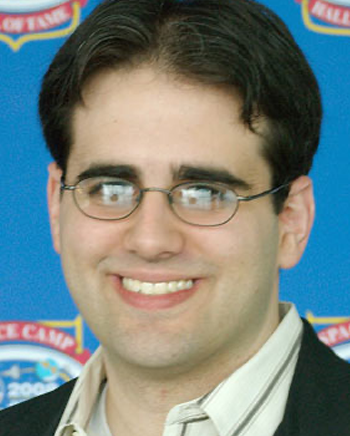
Vincent Vazzo
- Salem, Ohio
- BS, University of Illinois Urbana-Champaign
An 8-time trainee, former crew trainer, and current volunteer, Vincent Vazzo could have been inducted into the Hall of Fame in any of the three nominee categories. Vincent, the brain and energy behind the original, unofficial, SPACE CAMP social network, Hab1.com, never veered from the path to making the space program his career. Today, Vincent works for United Space Alliance as part of the Imagery Analysis Team at the Marshall Space Flight Center. His team provides NASA the imagery and communications tools to gather and organize information about liftoff debris enabling better and faster assessments of potential damage during a mission to ensure the safety of both craft and crew.
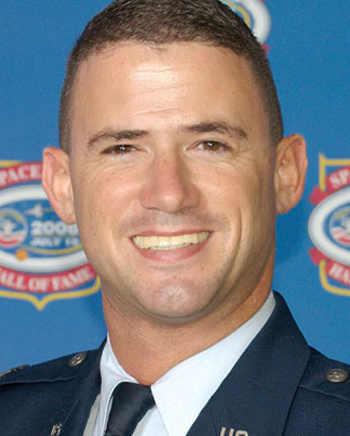
Major Phillip A. “Ritz” Smith
- Tampa, Florida
- BS, U.S. Air Force Academy
Although an alumnus of SPACE CAMP, Florida, and SPACE ACADEMY, USSRC, Phillip Smith found his calling somewhere between Earth and space. The would-be astronaut pursued a career in military aviation and landed what may be the dream job of many a young man or woman. Major Smith was an F-15E pilot stationed at Seymour Johnson Air Force Base in North Carolina. After serving in Operation Iraqi Freedom – and not satisfied with just any dream job, Major Smith secured perhaps the ultimate dream job. He served as an Air Combat Command Strike Eagle Demonstration Team pilot and Commander spending his days showcasing America’s F-15E Strike Eagle to more than seven million people across the world. No doubt about the accomplishments of Major Phillip A. “Ritz” Smith as he is only the second Air Force pilot ever chosen to be a demo pilot for this amazing machine. Currently, Major Smith is assigned to the 353rd Combat Training Squadron flying the F-16 as an Aggressor Pilot at Eielson AFB, Alaska.
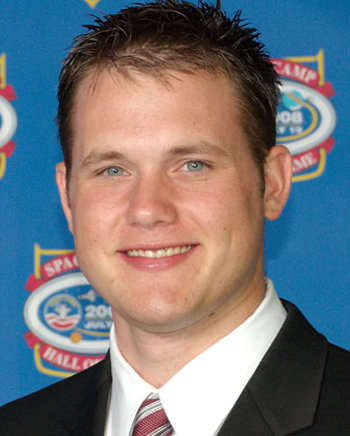
Josh Whitfield
- Waterford, California
Josh Whitfield was an all-American boy growing up playing football, baseball and golf, but it would be his long held fascination for the military and aviation that led him to become an AVIATION CHALLENGE trainee – 13 times. As a trainee, Josh earned the coveted Right Stuff Award 5 times and twice won the Top Gun Award. However, it is Army Specialist Whitfield’s valor and service that have earned him his spot in the Hall of Fame. As a gunner on one of the Army’s Stryker armored combat vehicles, Josh was twice injured during firefights to liberate the area of Hadar in the Iraq War. Today, Josh has come back home to Aviation Challenge as a crew trainer. He returns as a Bronze Star recipient… and a true American Hero.
- Dr. Wernher von Braun
- Edward O. Buckbee
- Georg von Tiesenhausen
- Dan Oates
- Dottie Metcalf-Lindenburger
- Dr. Jim Rice
- Amanda Stubblefield
- Penny J. Pettigrew
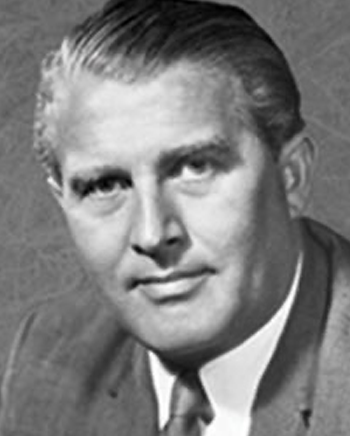
Dr. Wernher von Braun
- Berlin, Germany
- Technical University of Berlin, Charlottenburg
Inspired by the Science Fiction of Jules Verne and H.G. Wells, Dr. Wernher von Braun studied the works of German Rocketeer, Herman Oberth, to make science fact out of science fiction. Dr. von Braun was the leader of the German Rocket Team that was brought to America following WWII and directed the efforts of the scientists and engineers that put mankind on the moon forever marking his spot in world history as the Father of Manned Space Flight. The original Director of NASA and the George C. Marshall Space Flight Center, Dr. von Braun knew that America and the world would need a new generation of scientists, mathematicians, and engineers to ensure the continuation of his dream of manned travel beyond the moon. It was this knowledge along with Dr. von Braun’s rare combination of scientific genius, marketing savvy, and personal charisma that allowed him to envision and plant the seed that would grow into the world’s most recognized museum education program – SPACE CAMP®.
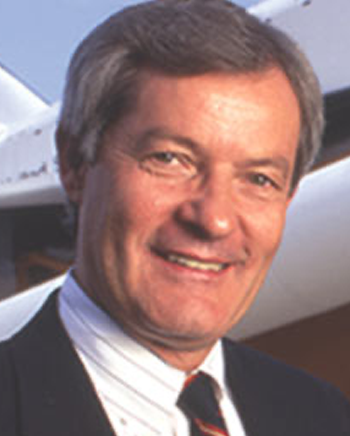
Edward O. Buckbee
- Huntsville, Alabama
- P.I. Reed School of Journalism, West Virginia University
Selected by Wernher von Braun in 1970 to serve as the first ever Chief Executive Officer of the U.S. Space & Rocket Center®, former NASA Public Affairs Officer, Edward O. Buckbee, has forever changed the face of Museum Education. In addition to assembling and managing the world’s largest space history museum and rocket collection, Buckbee brought to life von Braun’s vision by founding SPACE CAMP and later its sister program, AVIATION CHALLENGE®. Buckbee has spent more than 40 years championing all things space. Since retiring from the USSRC in 1994, Buckbee has continued that effort as an author, lecturer, and full-time space advocate working tirelessly to increase the public’s understanding of America’s role in the development of technology.
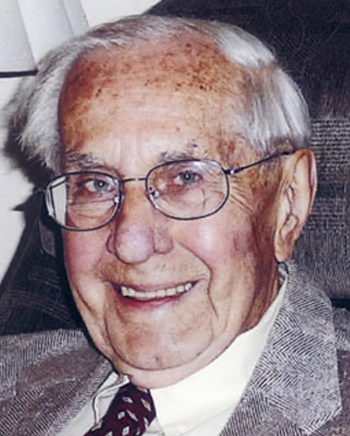
Georg von Tiesenhausen
- Riga, Latvia
- Hamburg University
Born to German-Scottish parents, Dr. Georg von Tiesenhausen was more than a witness to history…he was one of its designers. Dr. von Tiesenhausen joined von Braun’s Rocket Team in 1943 and immediately became one of its critical parts. He continued that role at NASA and, more than 20 years after his retirement, NASA still uses many of the components he designed. However, it is what he’s done since his retirement that has made him one of the most cherished and integral parts of SPACE CAMP – past and present. Dr. von T, as he is affectionately known to thousands of students from around the world, has spent more than 22 consecutive years volunteering as a guest lecturer at SPACE CAMP. A gifted teacher, Dr. von T is able to discuss such subjects as the time-space continuum so that even the youngest student understands and appreciates the lesson. SPACE CAMP has no greater friend than Dr. Georg von Tiesenhausen.
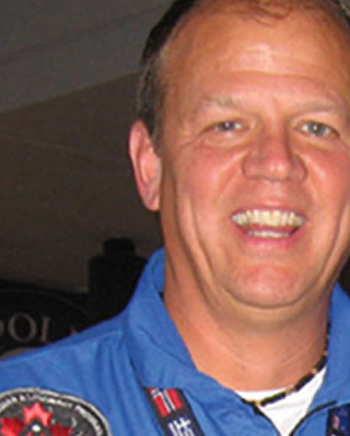
Dan Oates
- Romney, West Virginia
- BS, Fairmont State College
M.Ed, University of Pittsburgh
As the heart, soul, and mind of SPACE CAMP for Interested Visually Impaired Students (SCI-VIS), Dan Oates is more than a “friend” to SPACE CAMP – he is a champion. For 20 years, Oates has surrendered his summers and free time to bring to life this very special program. With a gift for drawing into his world the very best in the field of education for blind and visually impaired students, Dan has enlisted an army of teachers and specialists to make SCI-VIS possible and to bring these very special children out of their comfort zone and immerse them into the world of tomorrow. Today, a child who has never seen his mother’s face can launch the space shuttle and guide it safely home again. Oates has always given of himself – and to more than 2,200 students he has given perhaps the greatest gift of all, confidence…confidence in themselves and in their abilities.
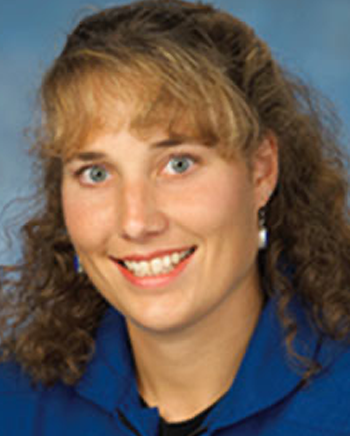
Dottie Metcalf-Lindenburger
- Ft. Collins, Colorado
- Whitman College
Although a trip to SPACE ACADEMY at the age of 14 opened up a world of possibilities for Dottie Metcalf-Lindenburger, it was a question from one of her 8th grade Astronomy students that really changed her life. It was the age-old question of “how do astronauts use the bathroom in space,” that led the young teacher to NASA’s website where the Educator Astronaut position had just been posted. Metcalf-Lindenburger had long been a science enthusiast and considers herself a sort of teacher for all people; the opportunity could not have been more perfect. So when she was selected as the youngest member of the 2004 Educator Astronaut Candidate Class, it was literally a dream come true. Today, Dottie Metcalf-Lindenburger has completed her Astronaut Training and has been assigned to STS-131 as a Mission Specialist aboard the Orbiter Discovery scheduled for launch in 2010.
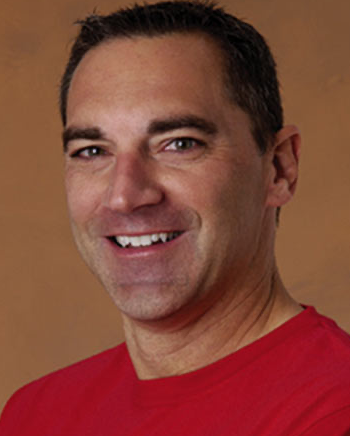
Dr. Jim Rice
- Tuscaloosa, Alabama
- BS, University of Alabama
MS, Northeast Louisiana University
PhD, Arizona State University
Believing that exploration is the lifeblood of a civilization, Astrogeologist Dr. Jim Rice has always interested in science and the history’s great explorers. Today, he is both…scientist and explorer. Rice started his journey as a SPACE CAMP crew trainers in 1985 and used his location and passion to endear himself to a group of Marshall Space Flight Center engineers. The engineers did more than befriend Rice; they helped him obtain an internship with NASA in which he helped select a landing site for a project that would send the first robot to Mars. Today, Dr. Rice is one of the Science Team Members for Mars Rovers, Spirit and Opportunity, and is the man behind the camera onboard Mars Odyssey – targeting the camera and analyzing the fantastic photos that are returned. Dr. Jim Rice spends his days, literally, looking for life on Mars.
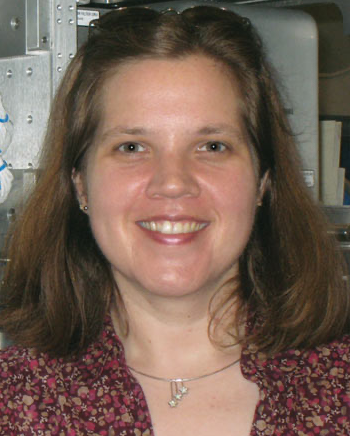
Amanda Stubblefield
- Cross Plains, Tennessee
- BS, Vanderbilt University
MAS, Embry-Riddle Aeronautical University
A former trainee and camp crew trainer (1995 – 2000), Amanda Stubblefield went from training students at space camp and aviation challenge to training astronauts at nasa’s Johnson Space Center. It was the 1983 launch of Challenger, aboard which flew the first American woman astronaut, that sealed Stubblefield’s fate. Although only 8 at the time of that historic launch, she knew before Challenger disappeared from sight that she would be a part of the Space Program. With an engineering degree in hand, Amanda worked diligently to ensure that she was on the path to fulfilling her childhood dreams. Stubblefield has realized those dreams and today serves as an instructor for the astronauts and cosmonauts who will fly to the International Space Station.
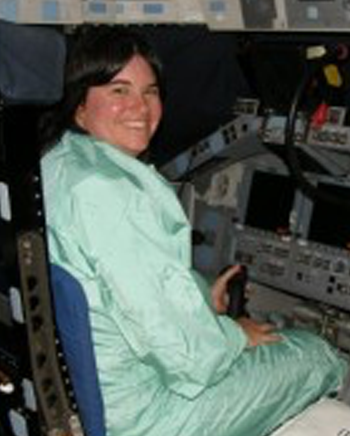
Penny J. Pettigrew
- Chula Vista, California
- BS, Colorado School of Mines
MS, University of Alabama Huntsville
Penny Pettigrew has always been interested in the space program but freely admits she had no idea what she wanted to do with her chemistry degree until she attended SPACE CAMP. She never thought of working for NASA and considered the space agency as a place reserved for astronauts only, but a trip to the Adult SPACE CAMP program while still in college opened a world of new possibilities. After leading the Ares I First Stage Systems Engineering and Integration Team in support of NASA’s cancelled Constellation Program, Penny now works in the Payloads Integration and Operations Center located at NASA’s Marshall Space Flight Center as a Payloads Communications Manager (PAYCOM). As a PAYCOM, Penny is responsible for talking to the astronauts who are currently living and working on the International Space Station to assist them with their daily science activities. Penny says this job is just like being at Space Camp but the real thing! As a PAYCOM, Penny relies upon one simple fundamental… teamwork. Not only does Pettigrew consider teamwork to be the cornerstone of the manned space flight program, but also lists it as “Lesson 1” at SPACE CAMP.
